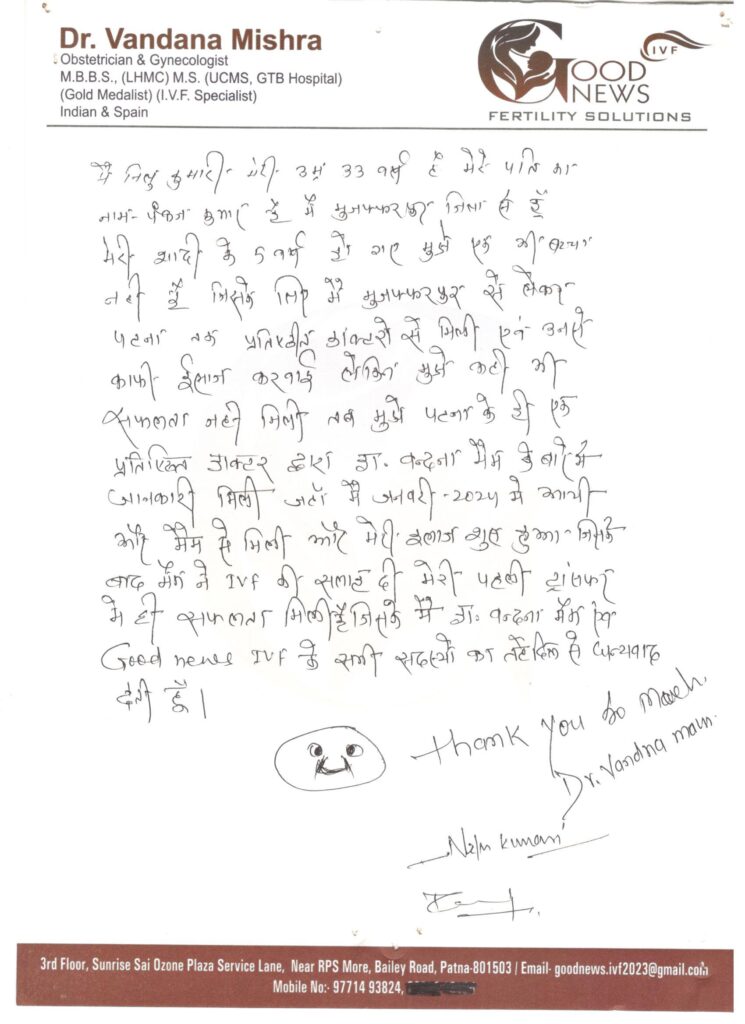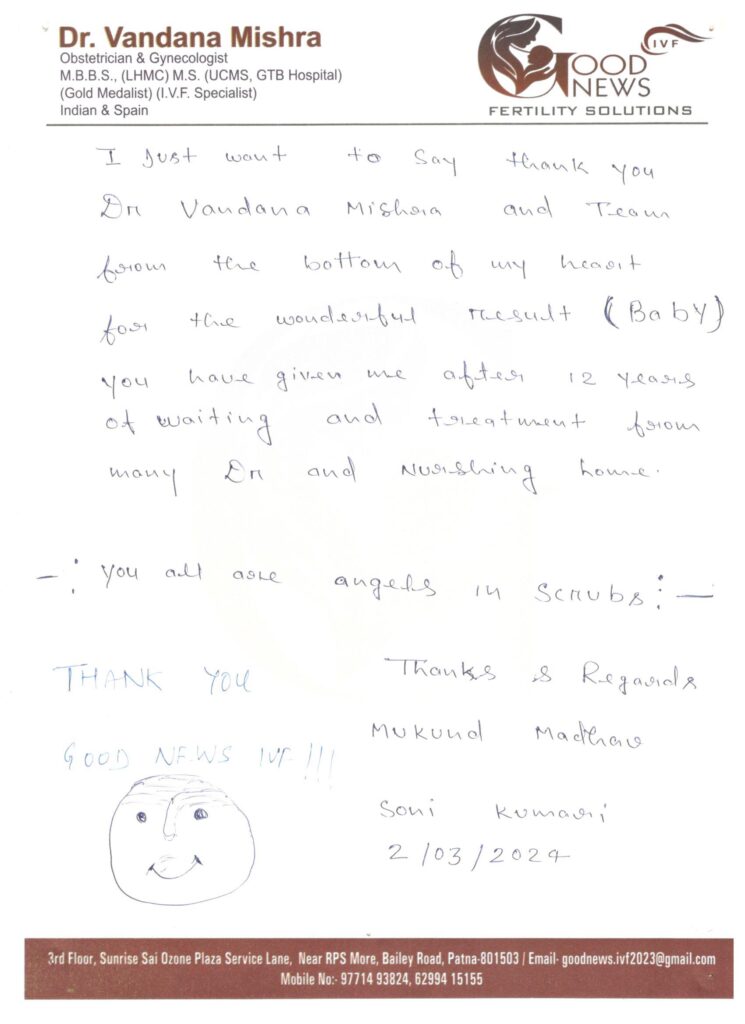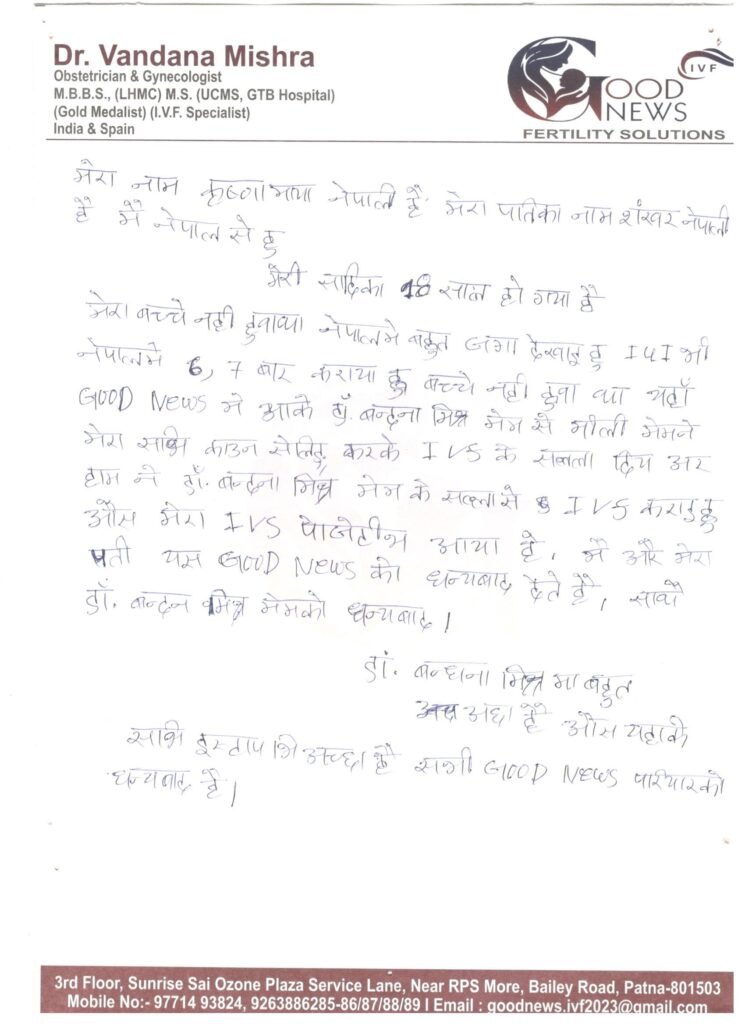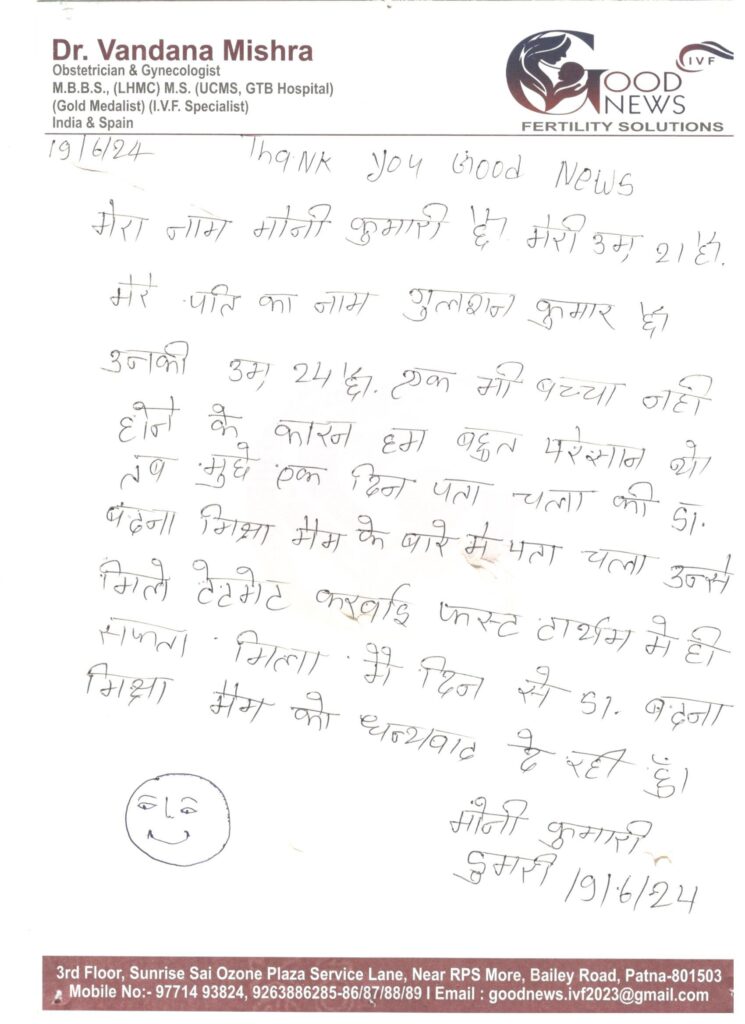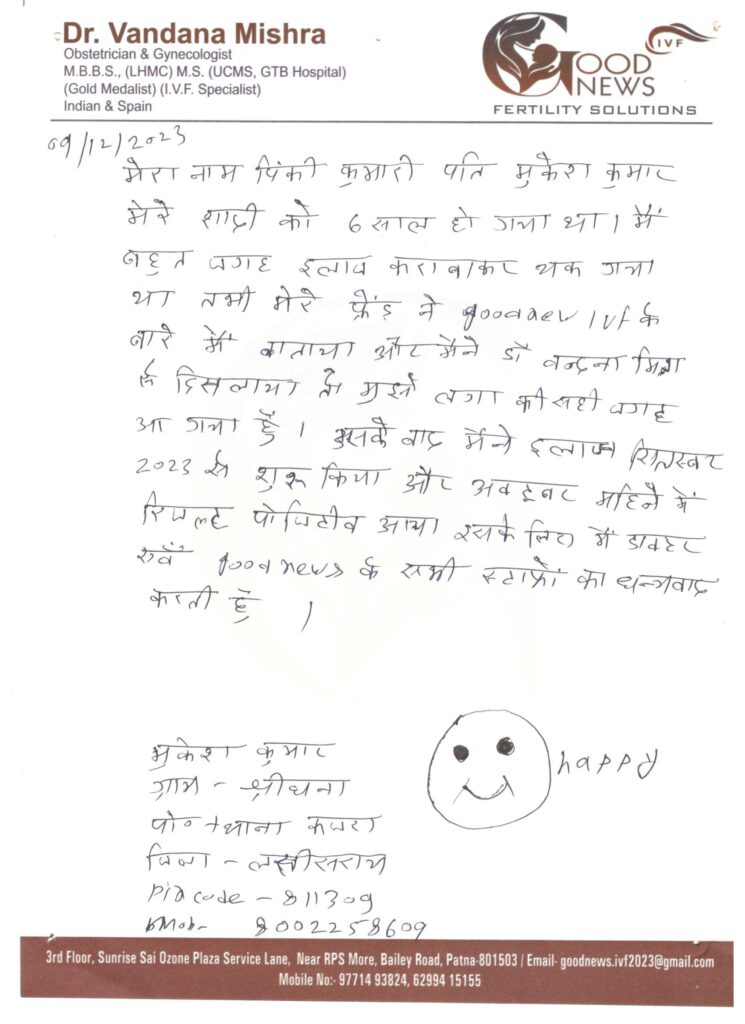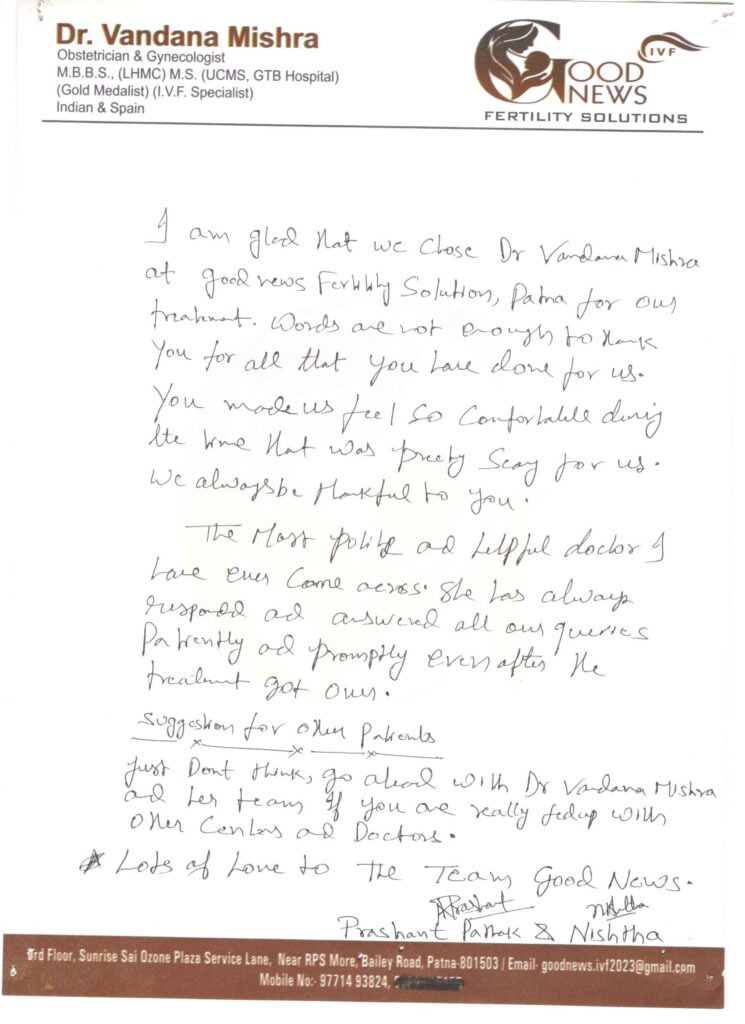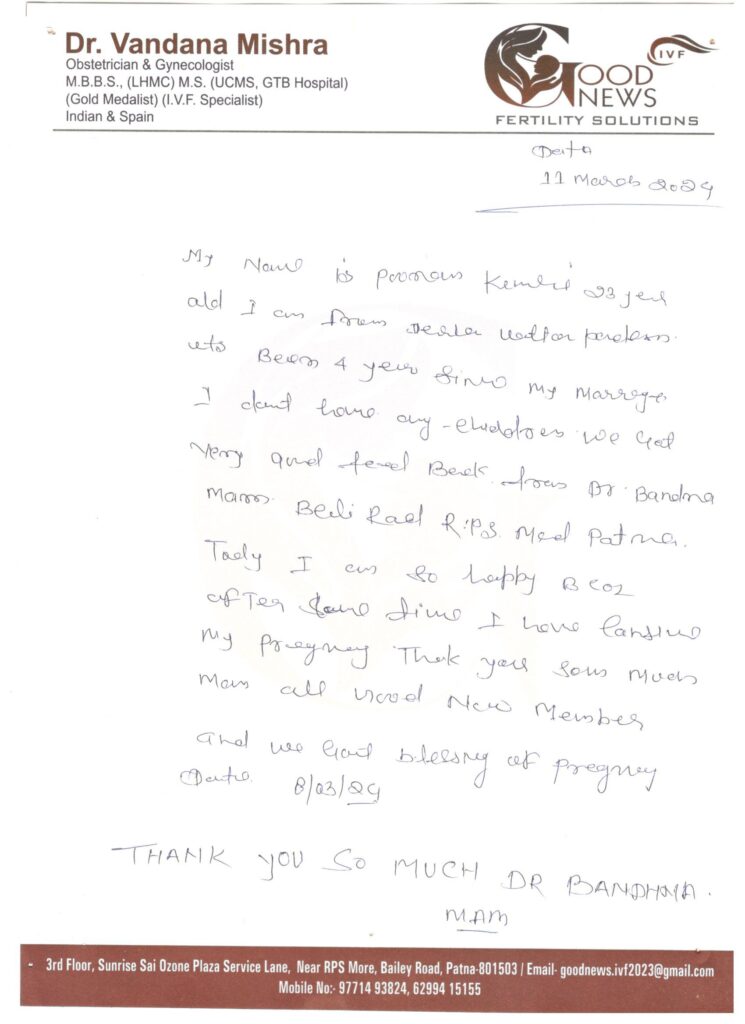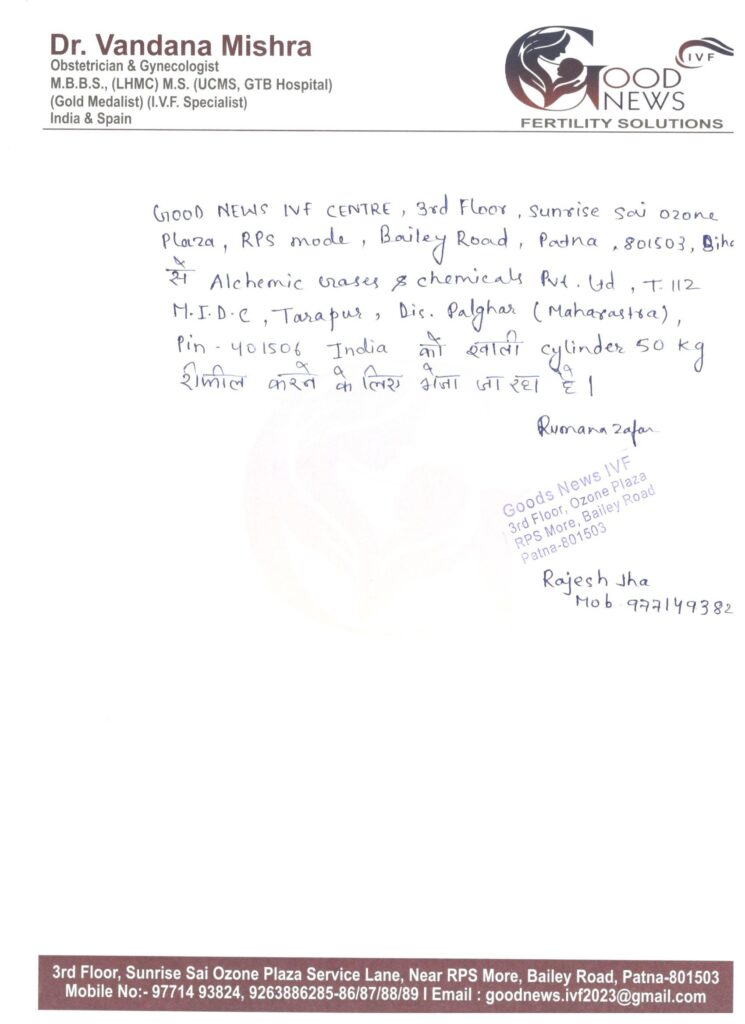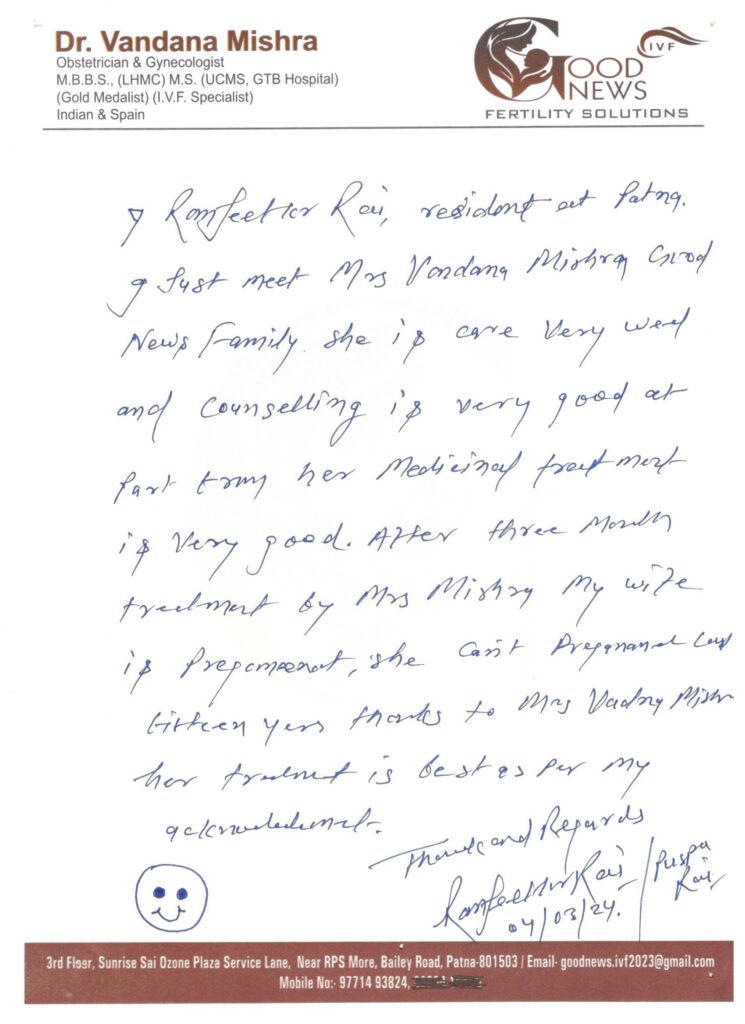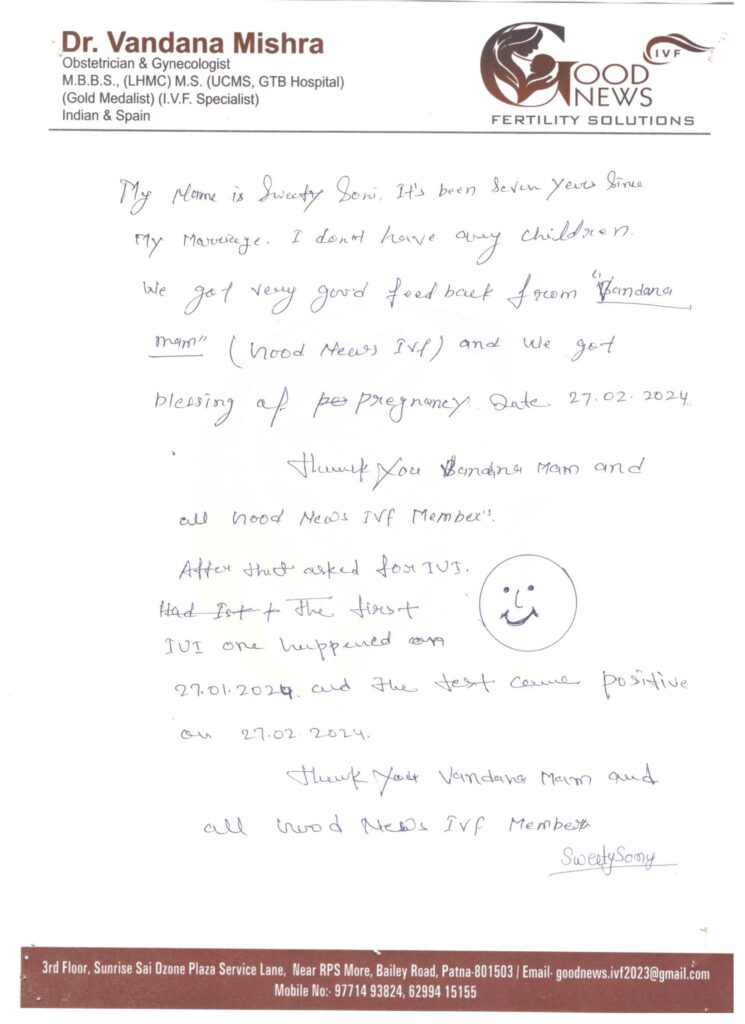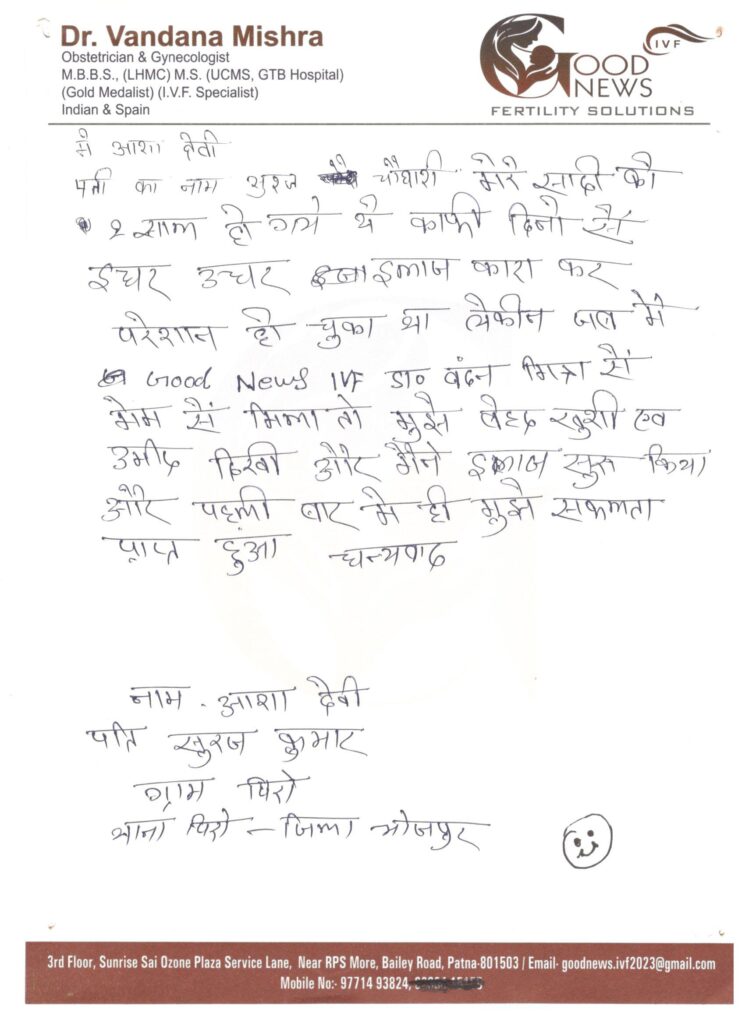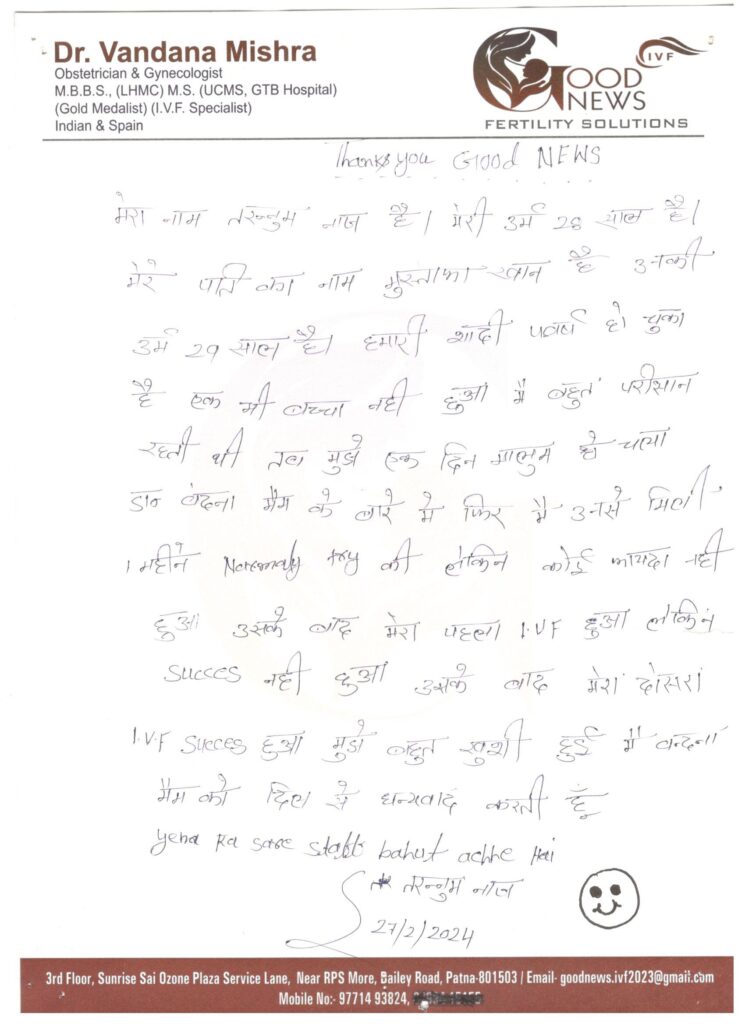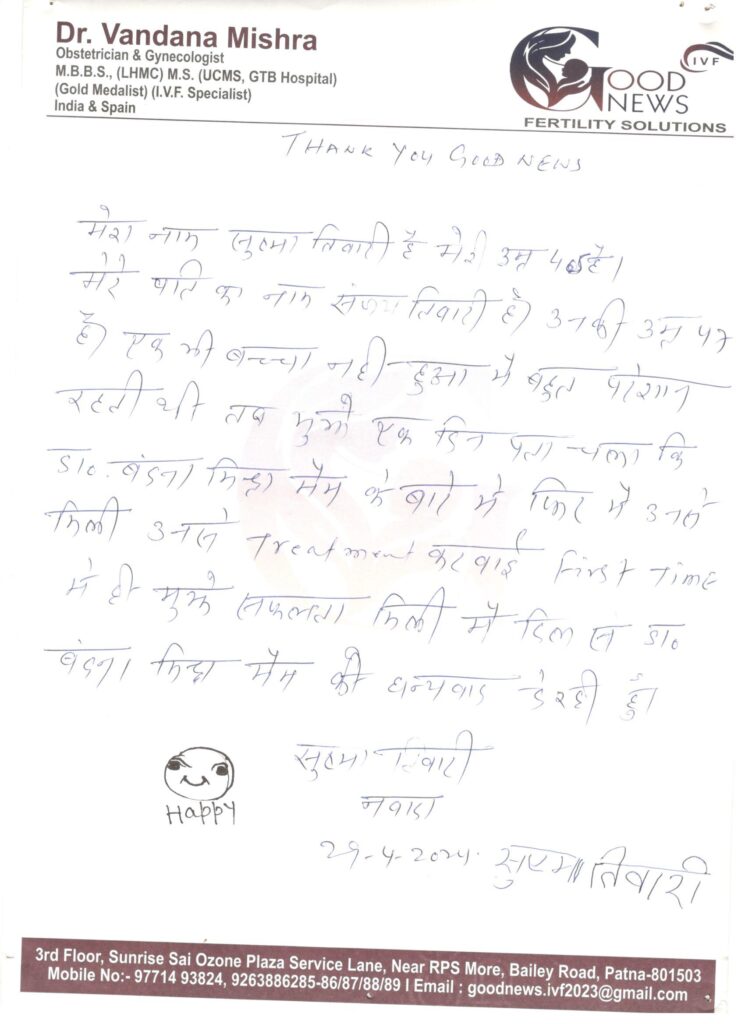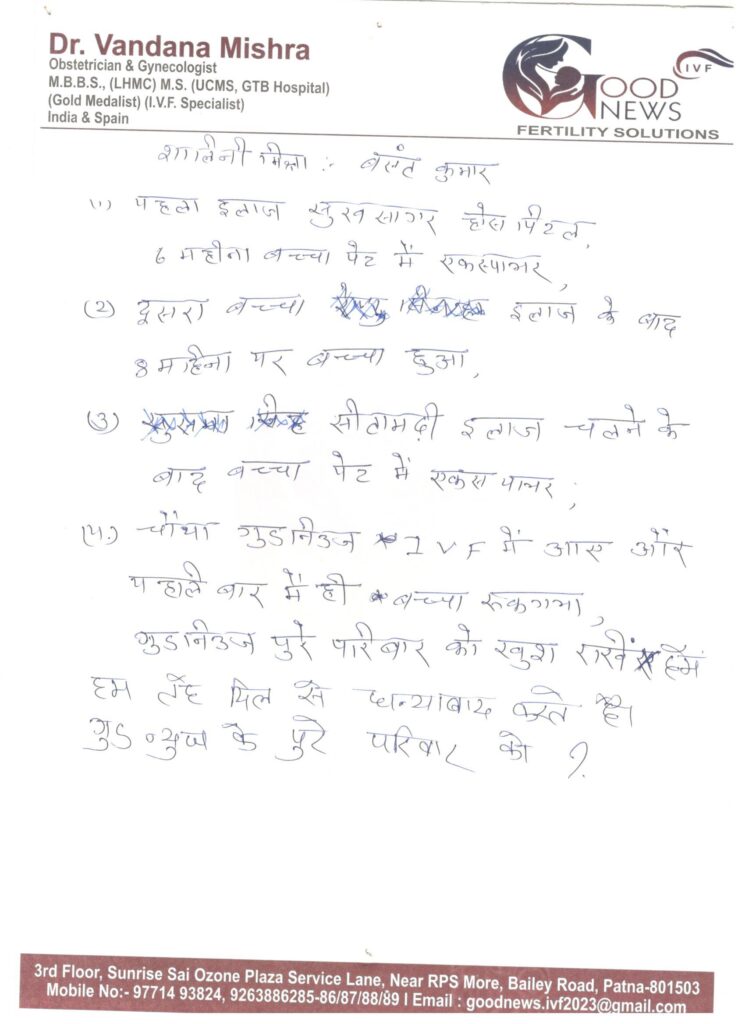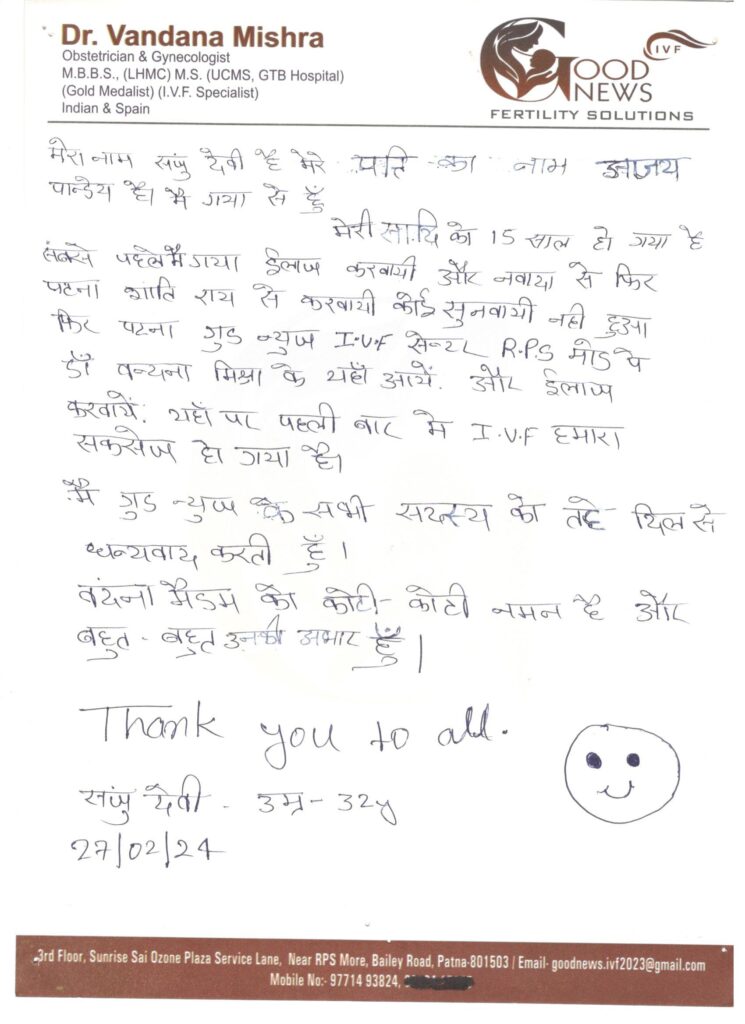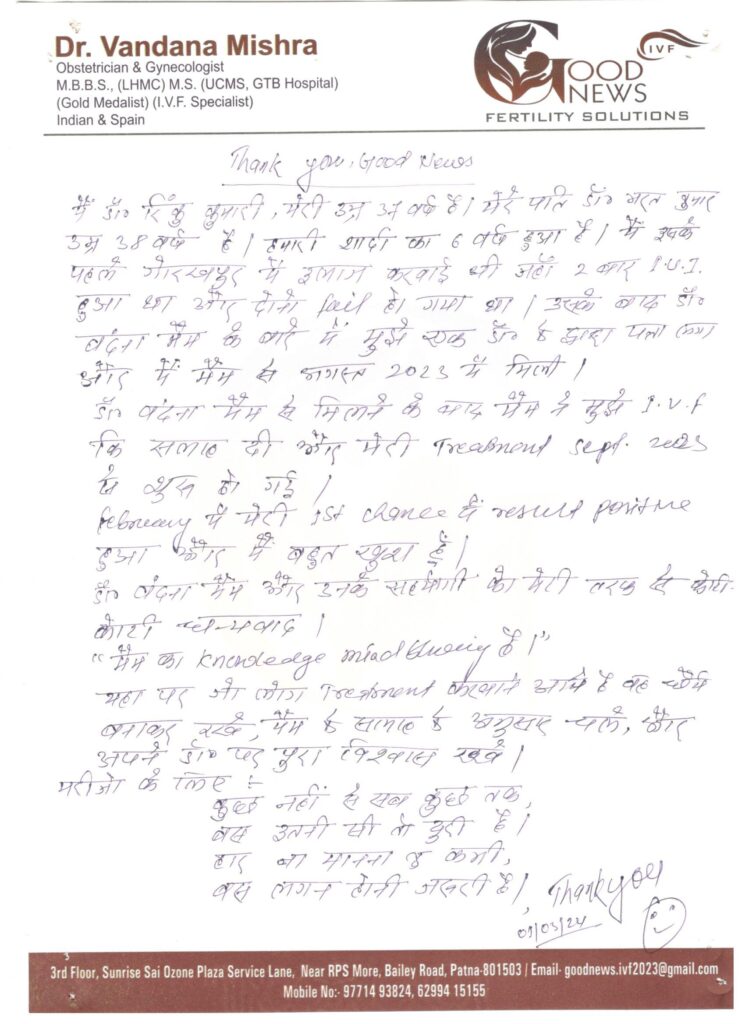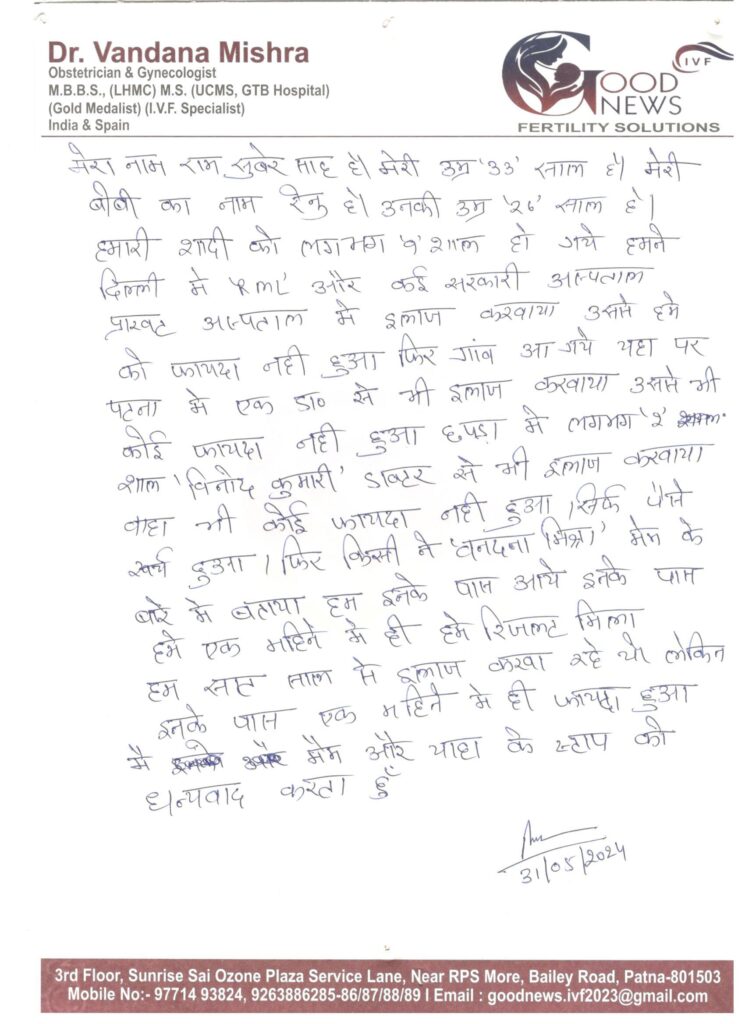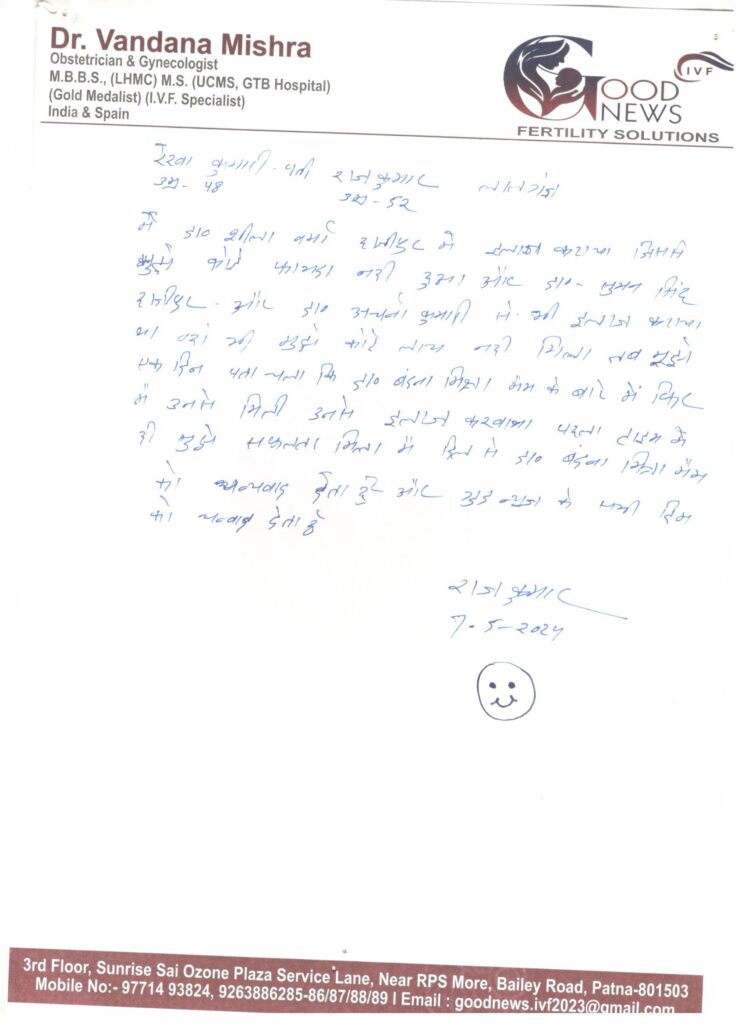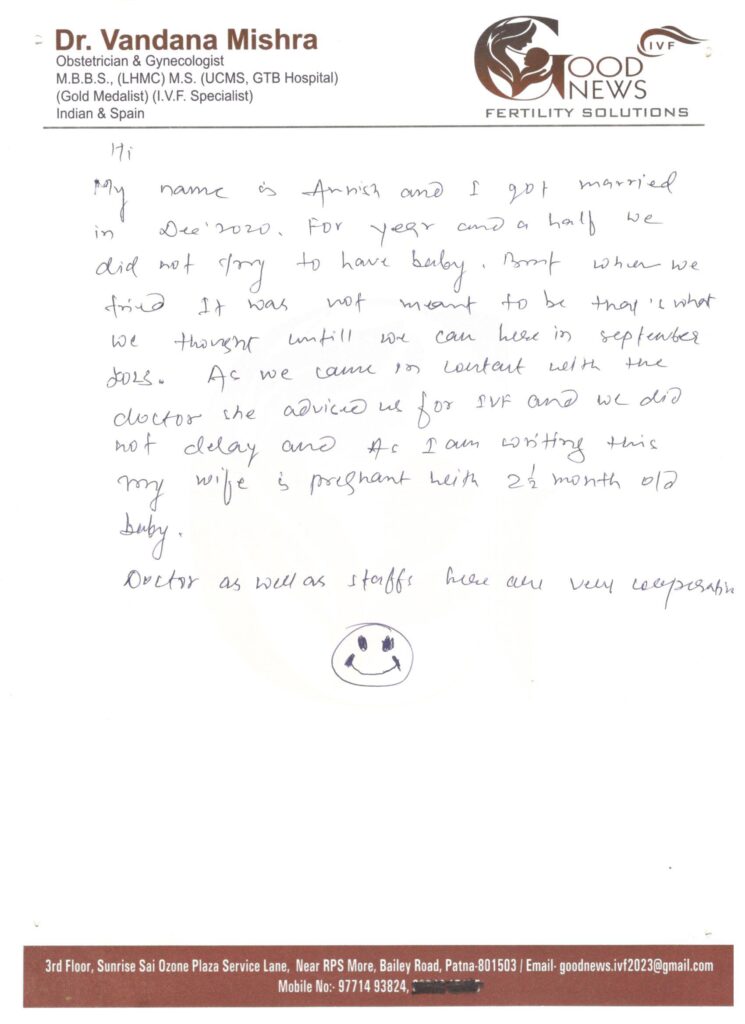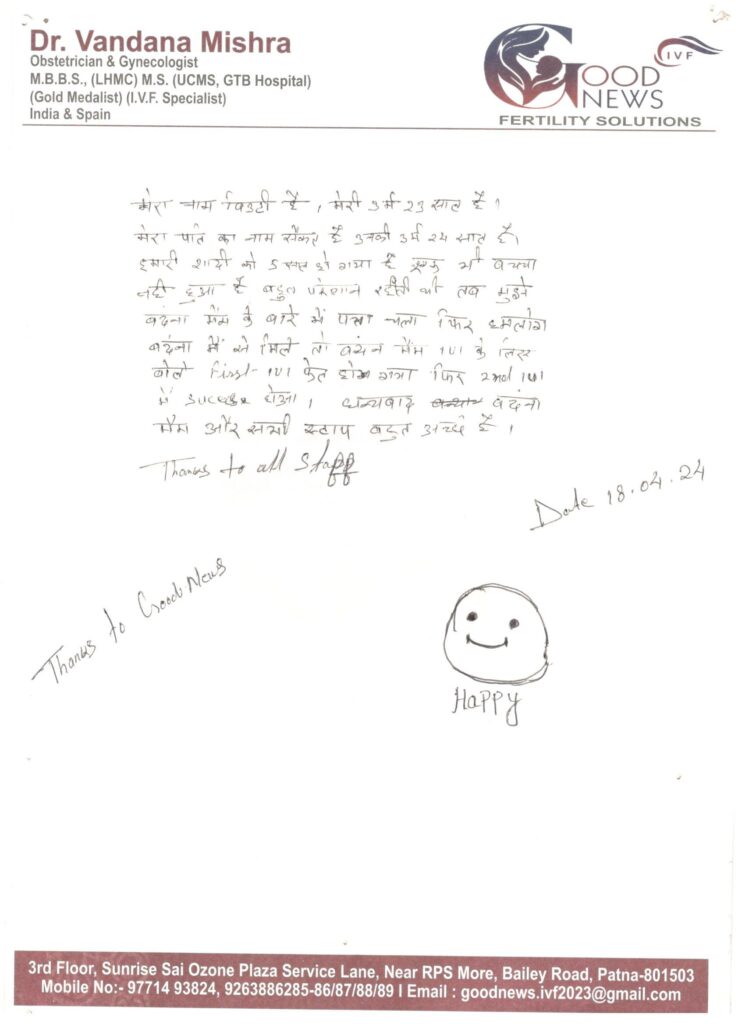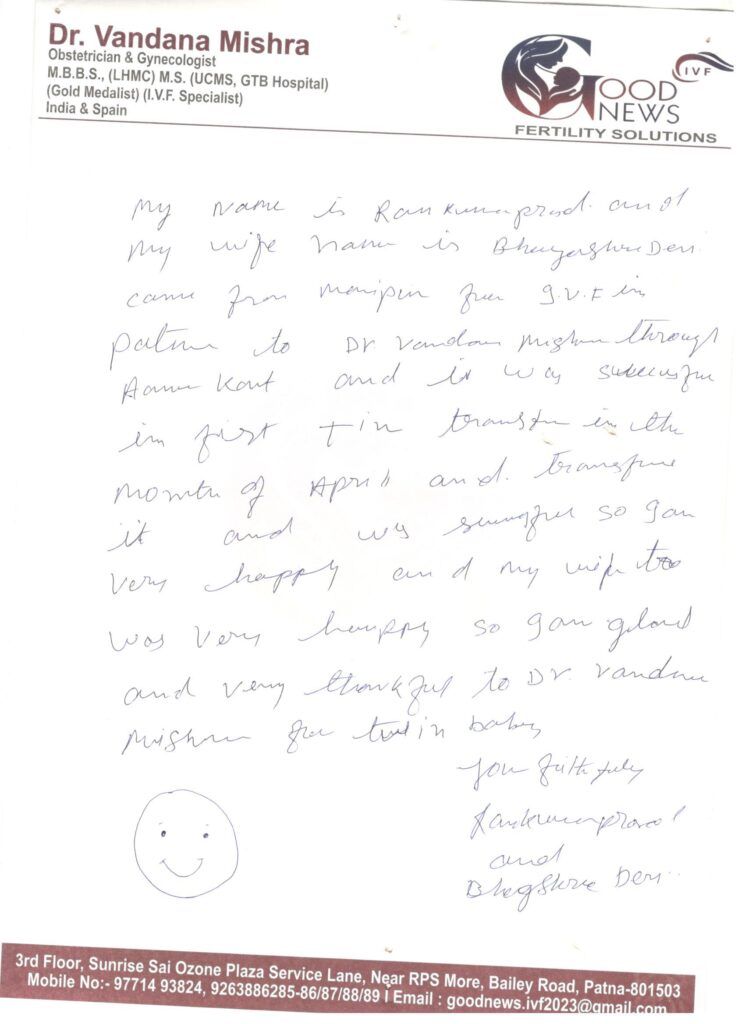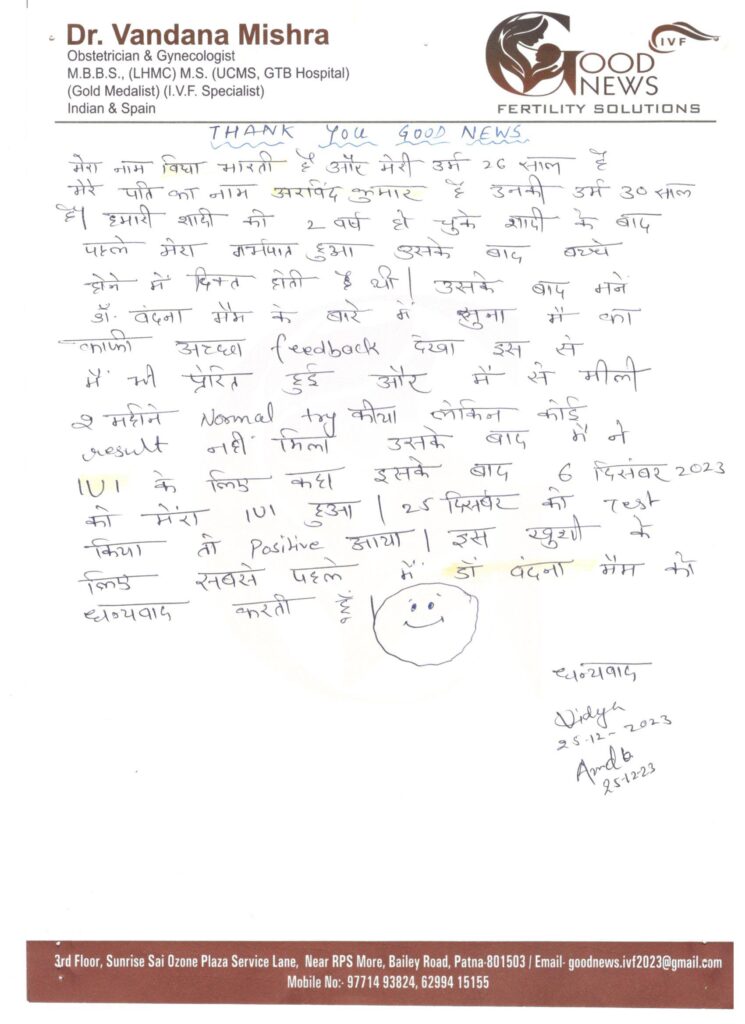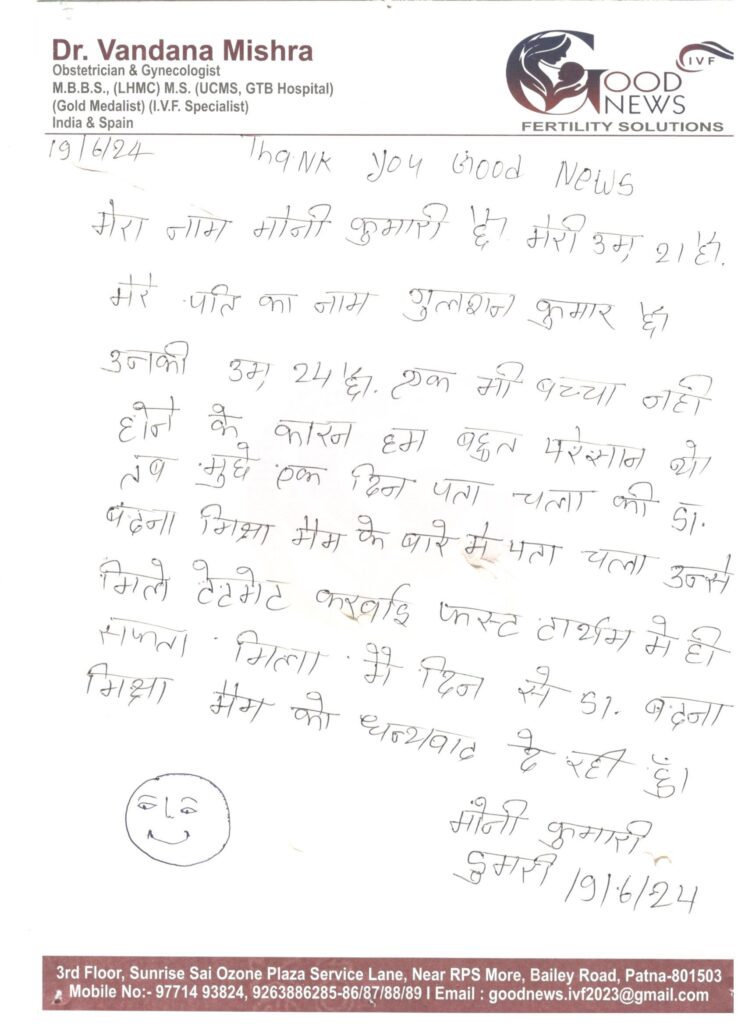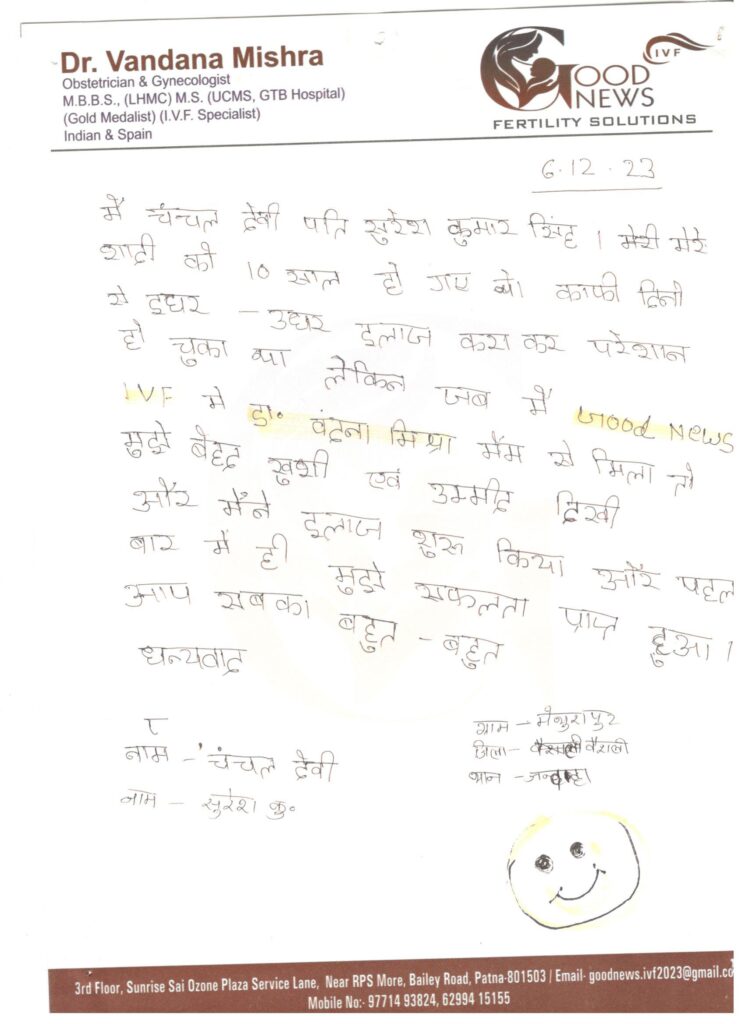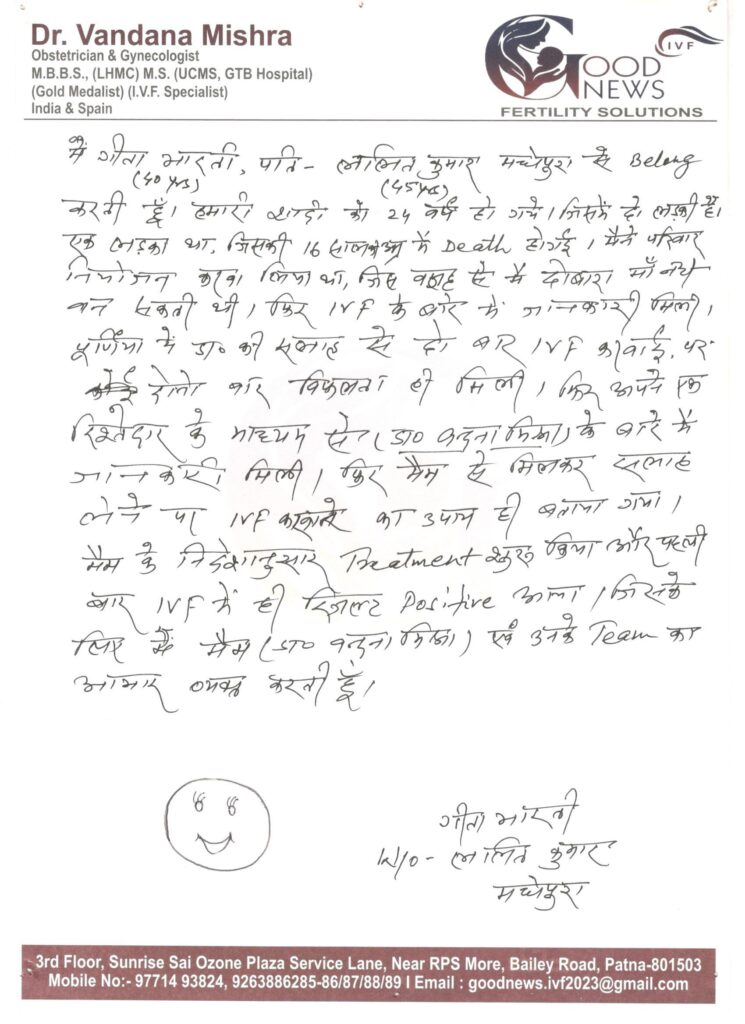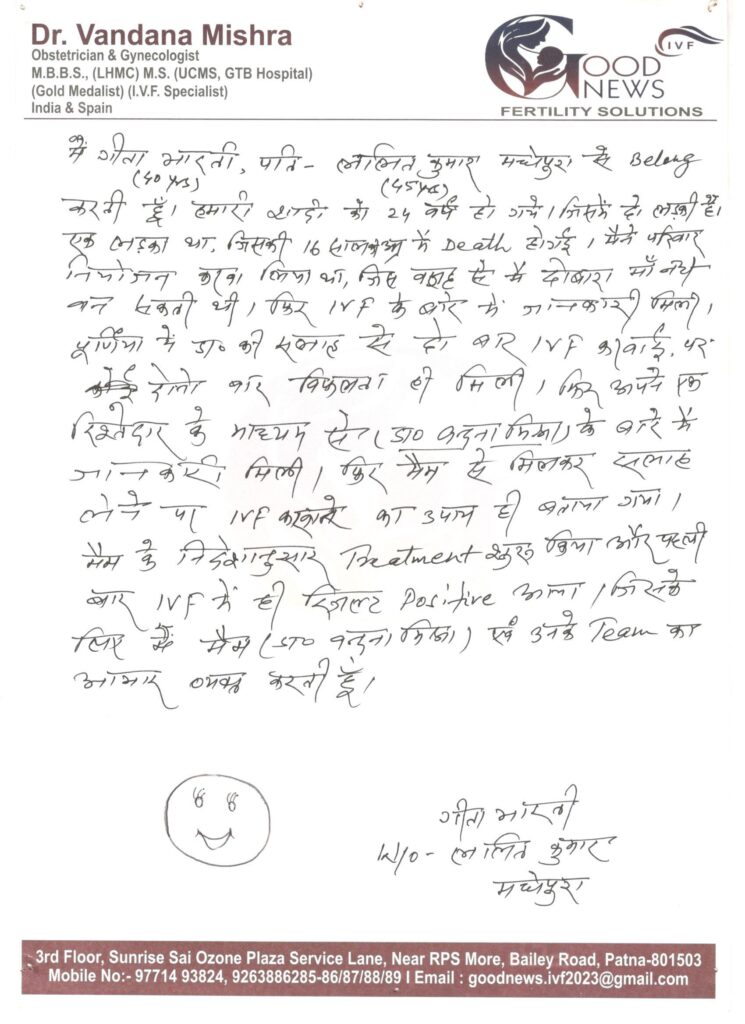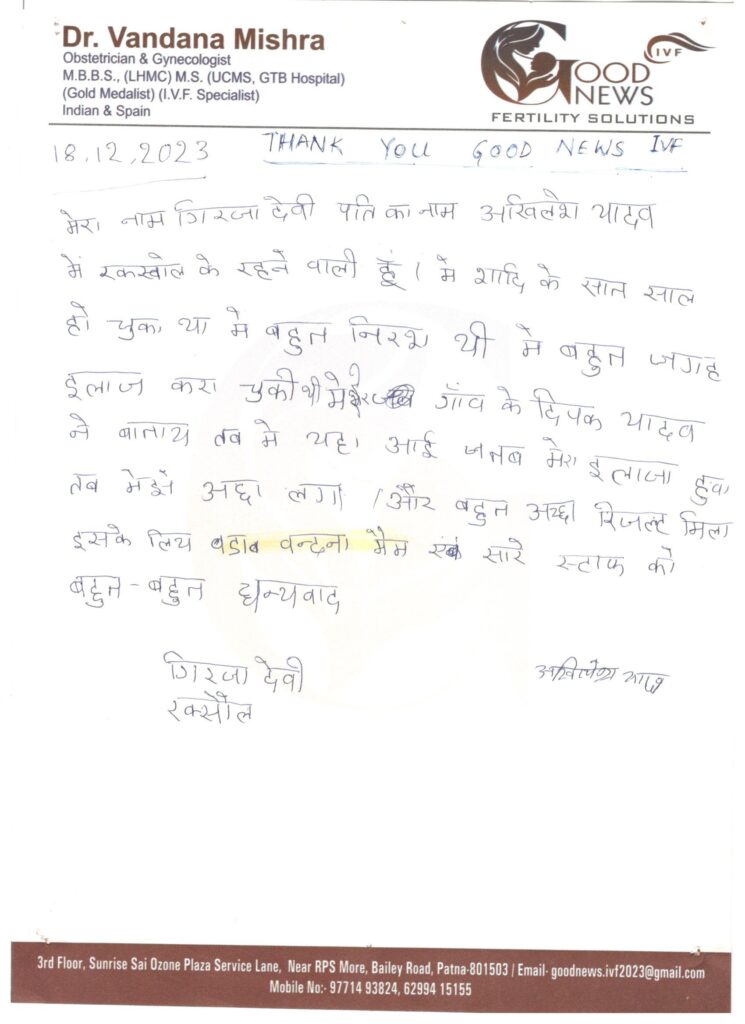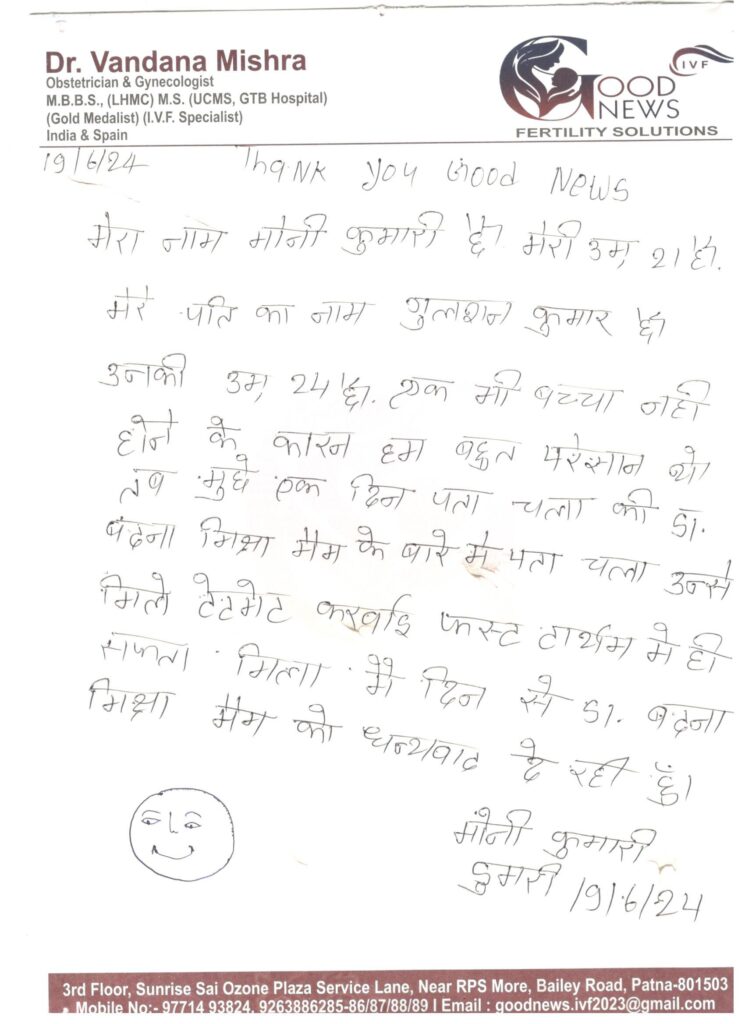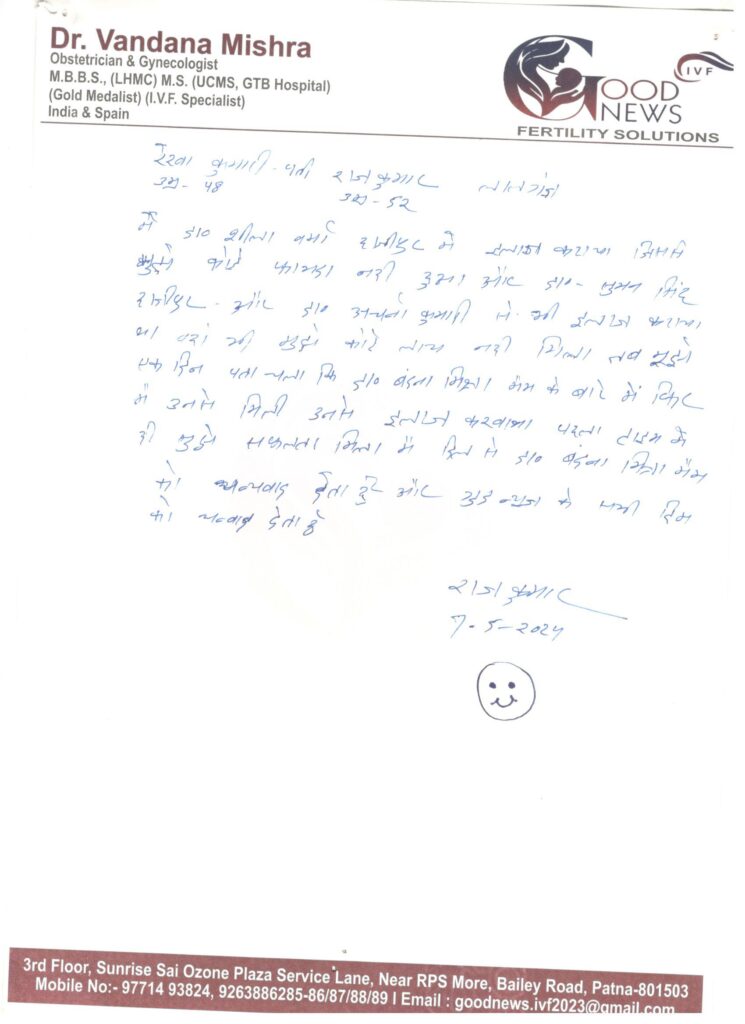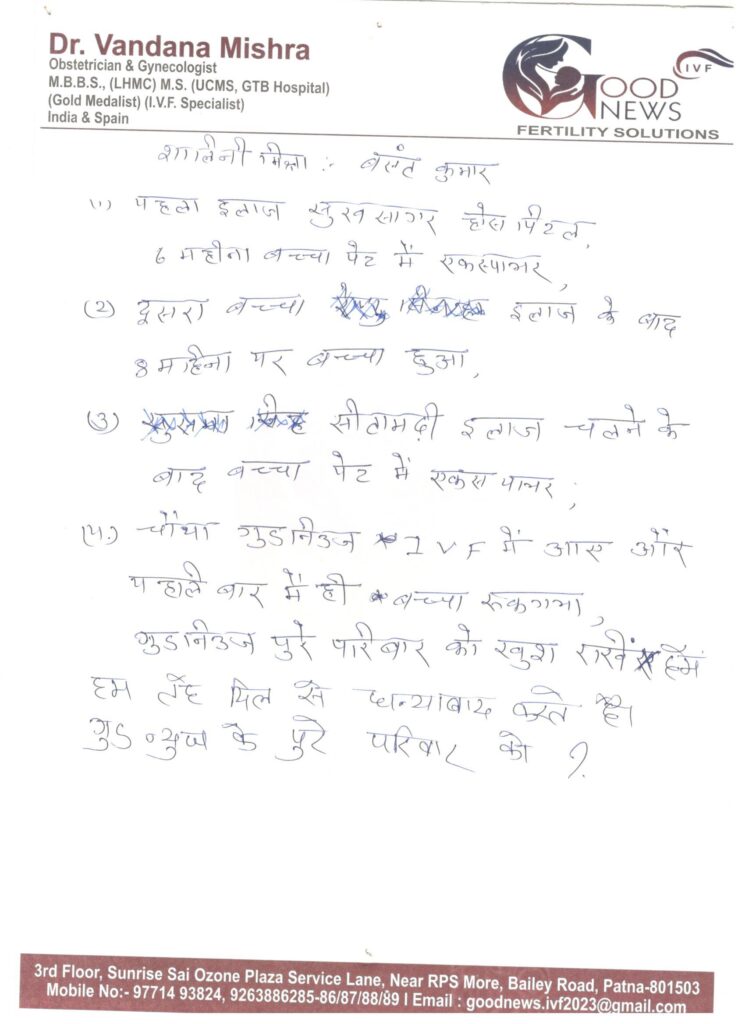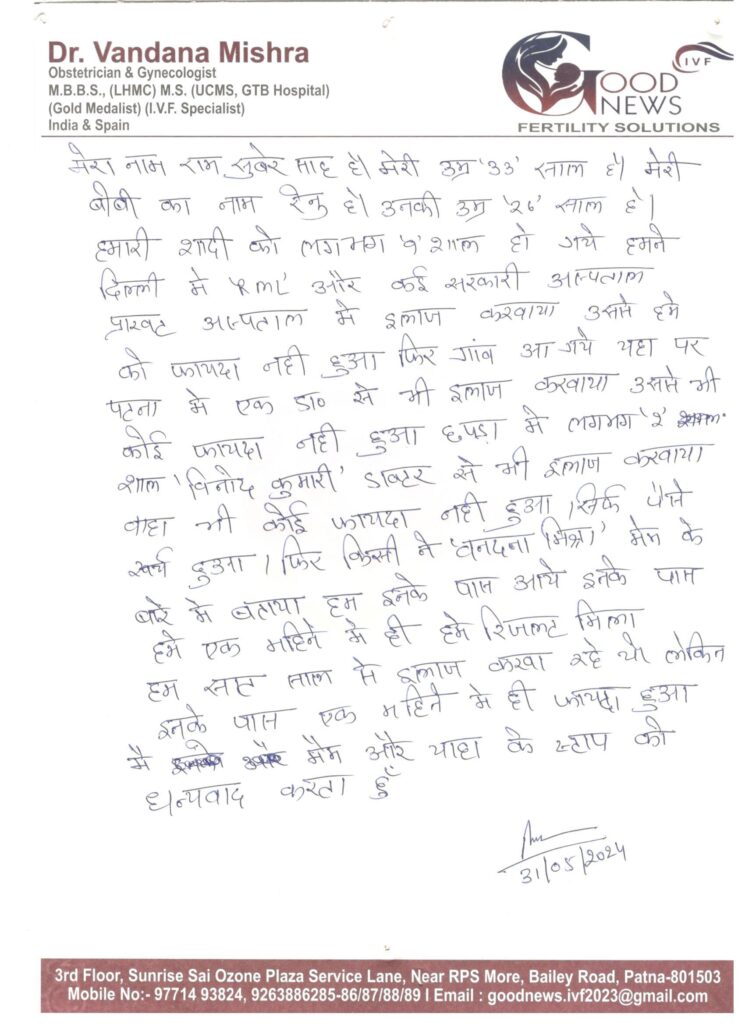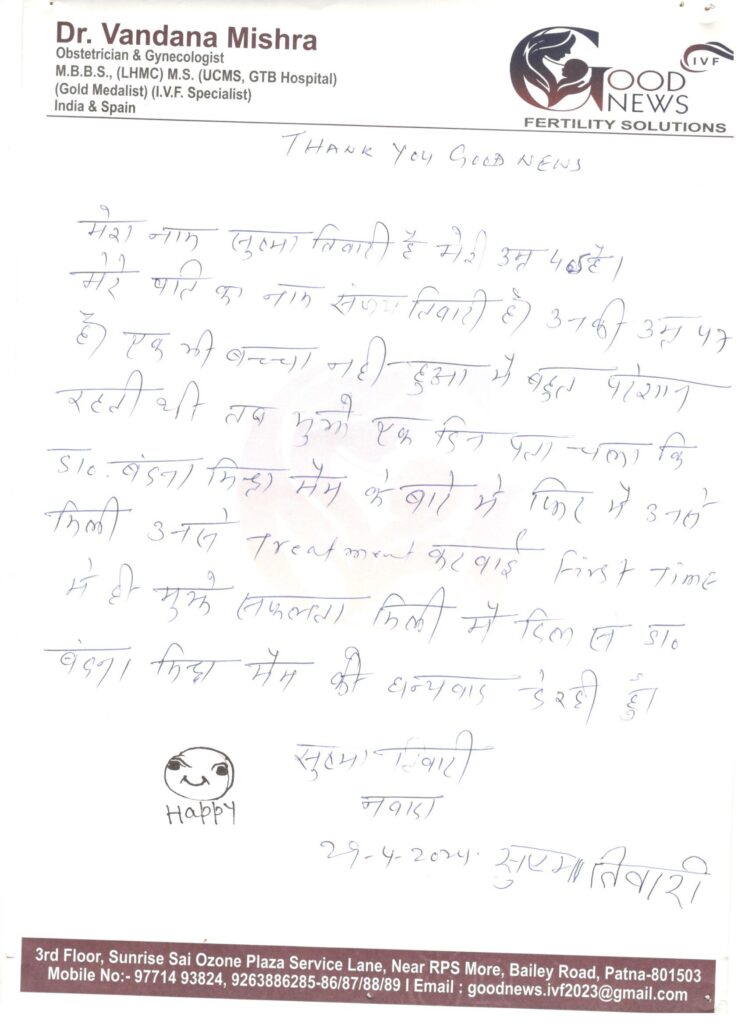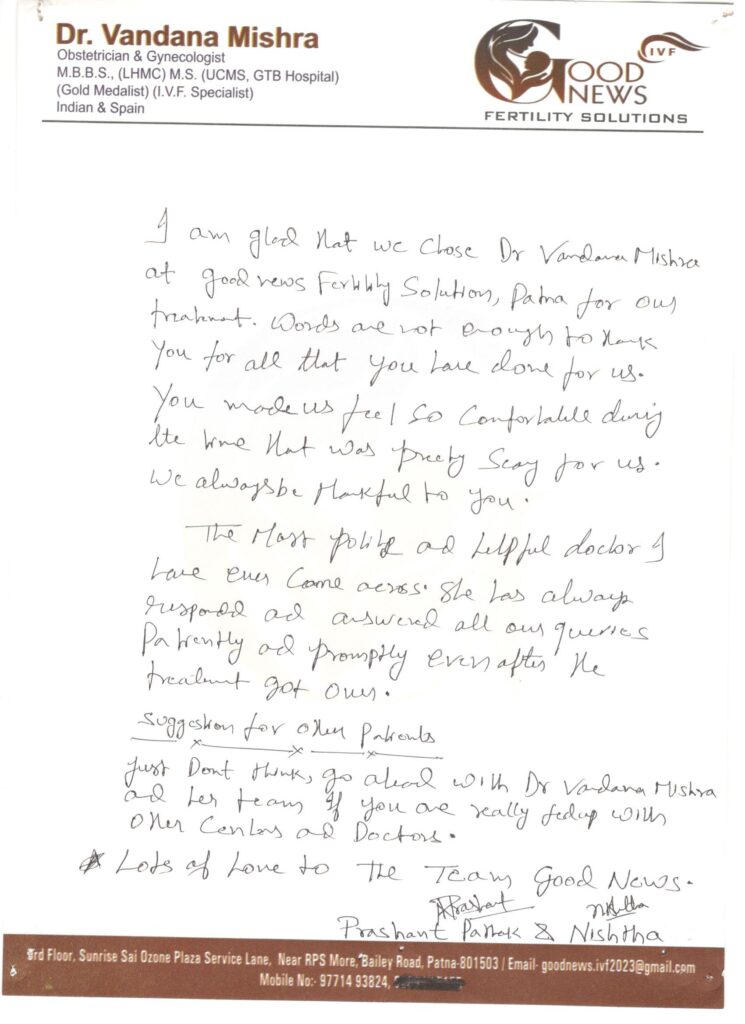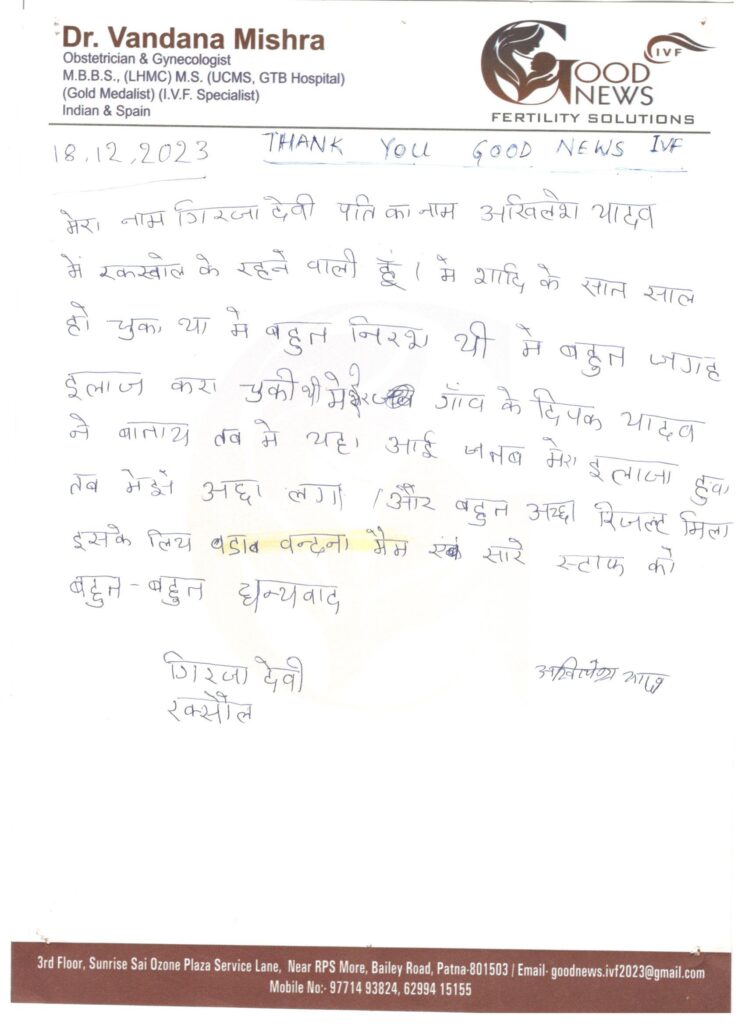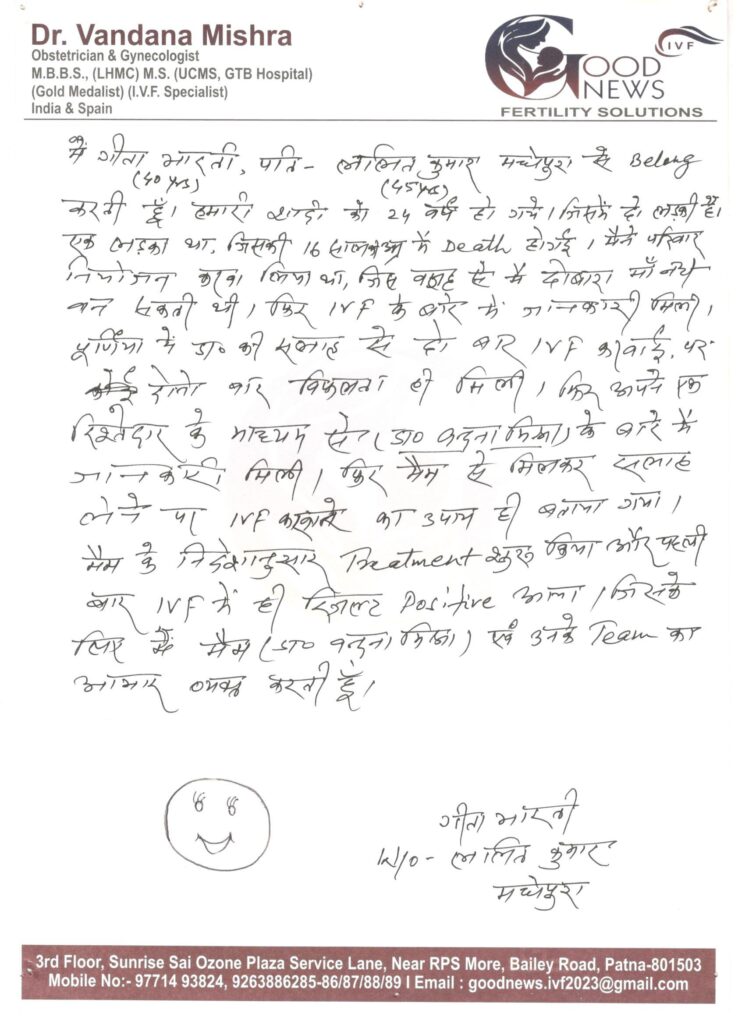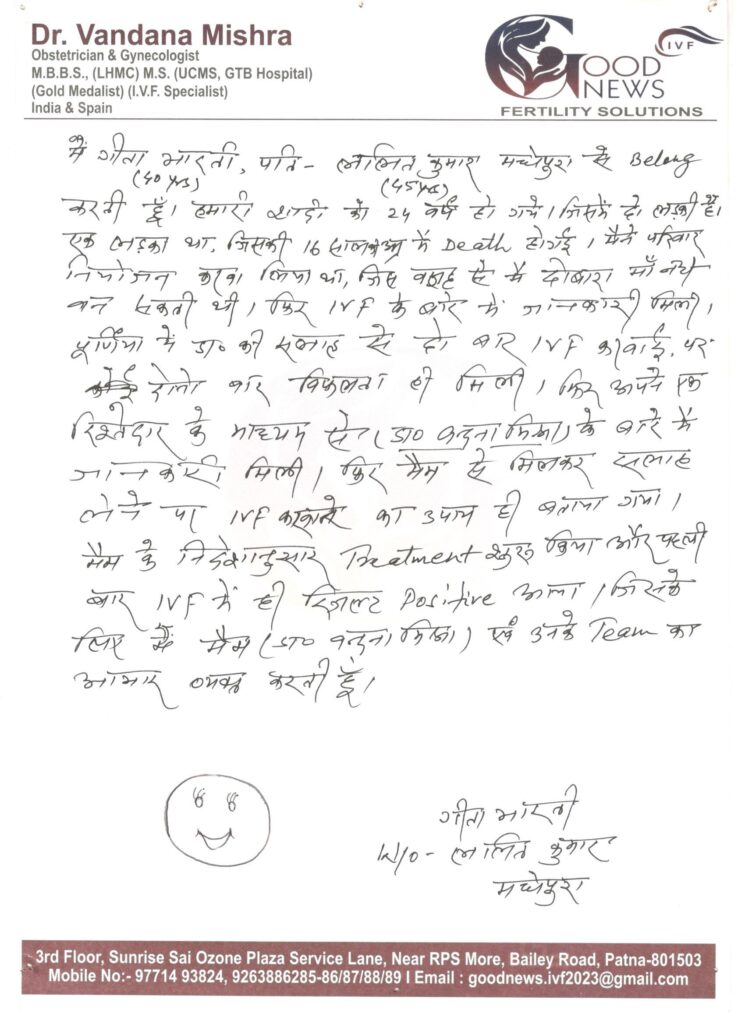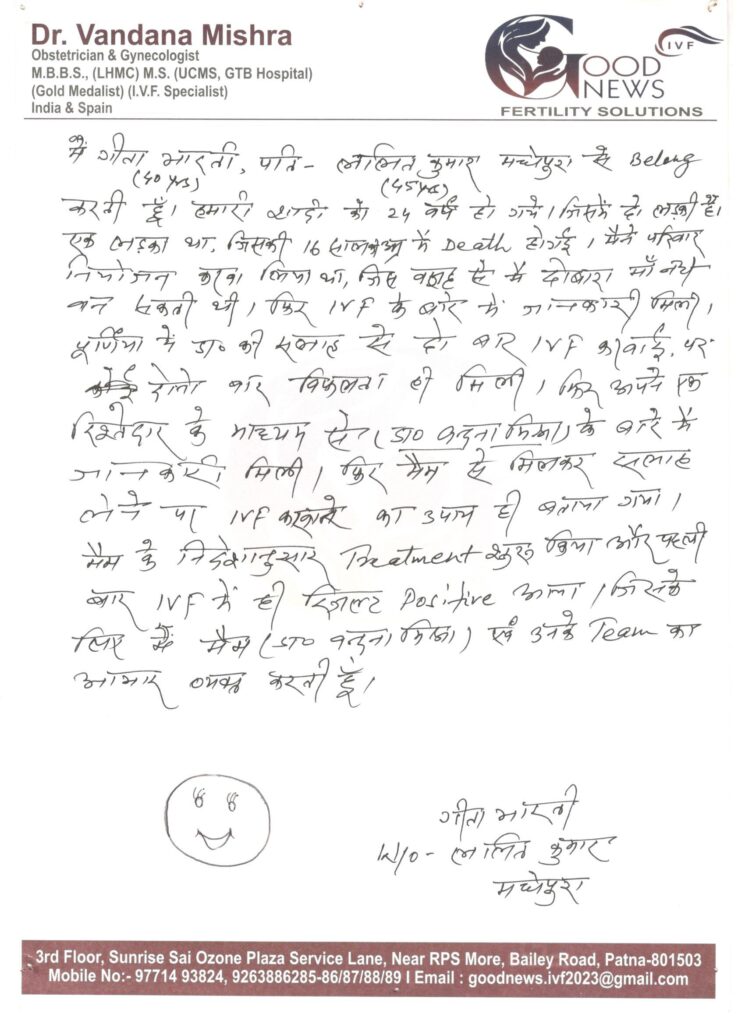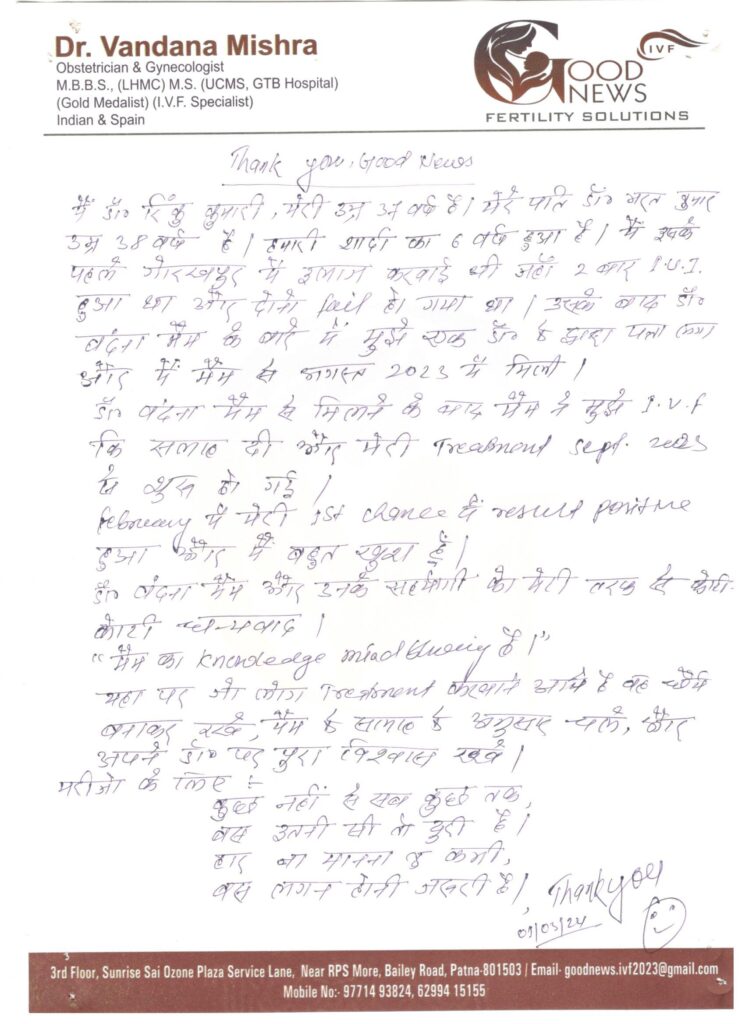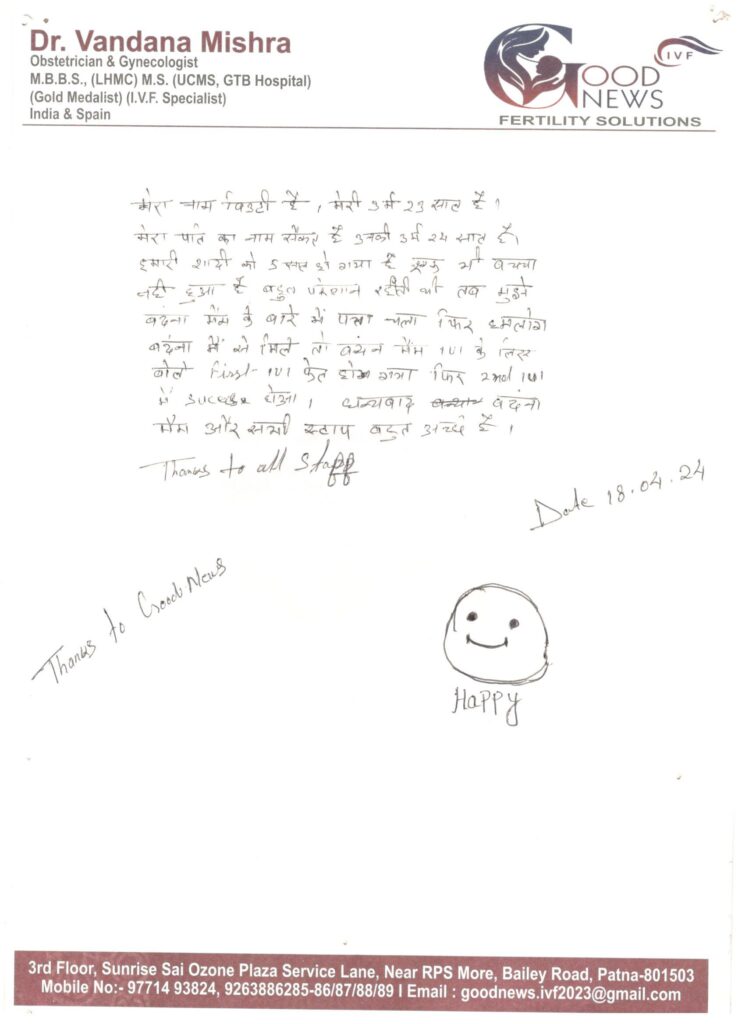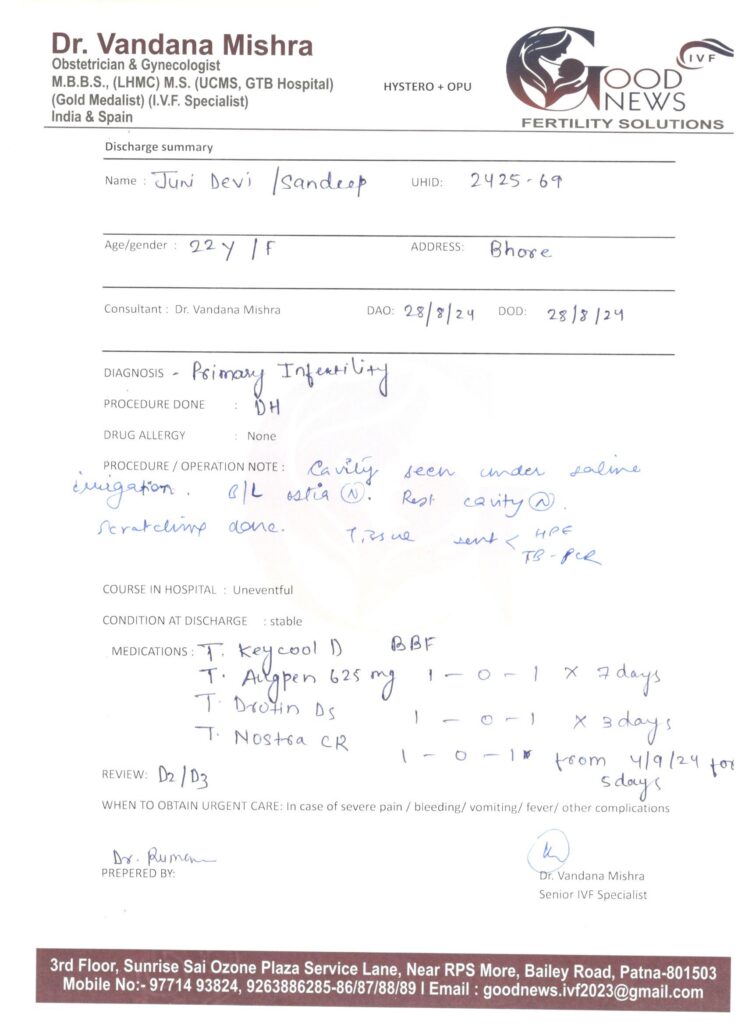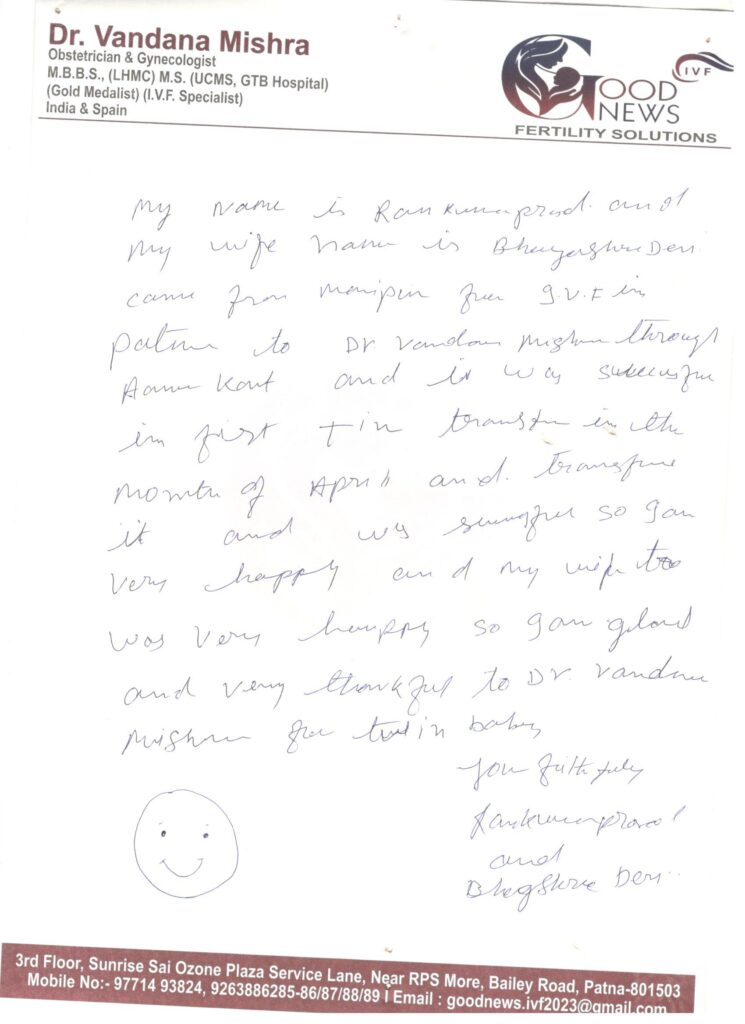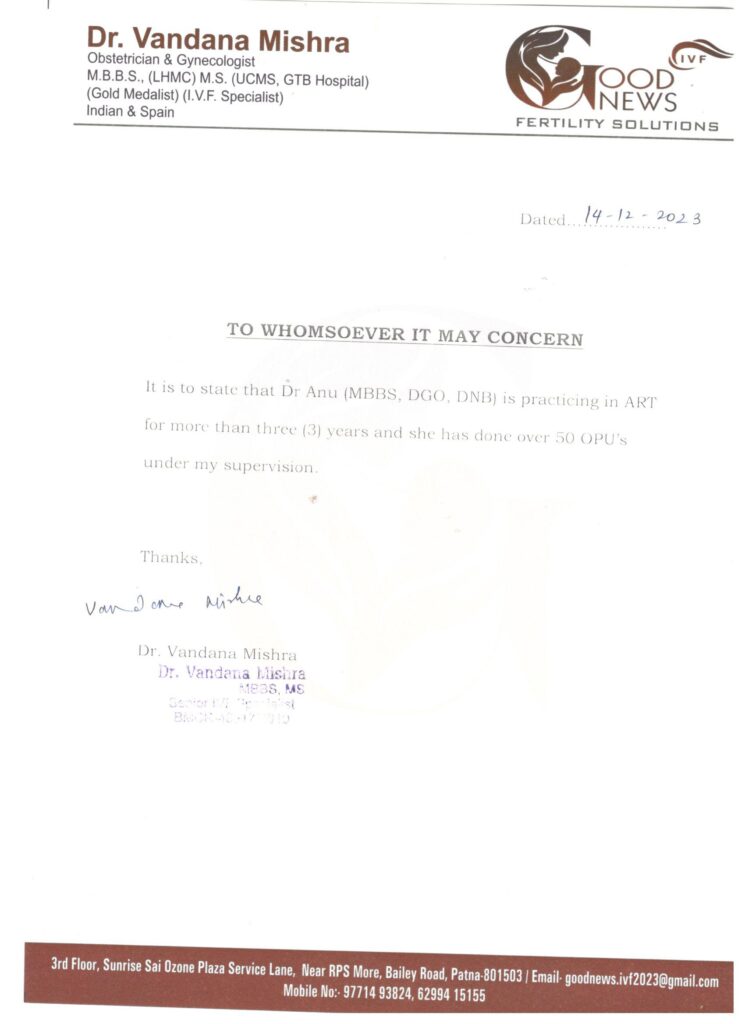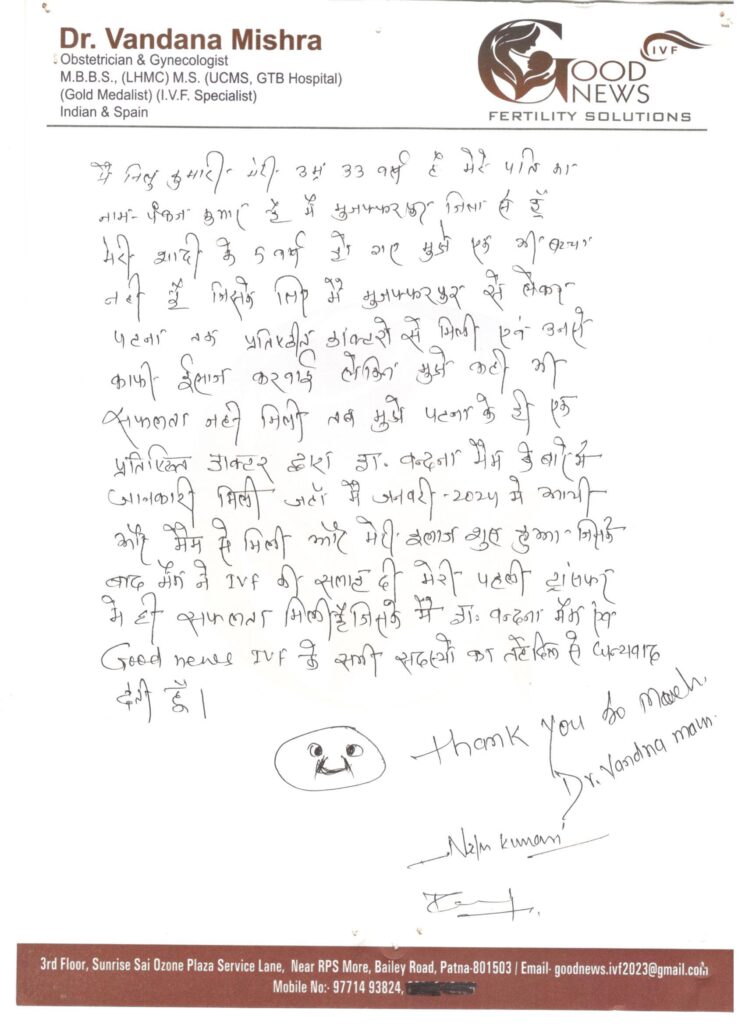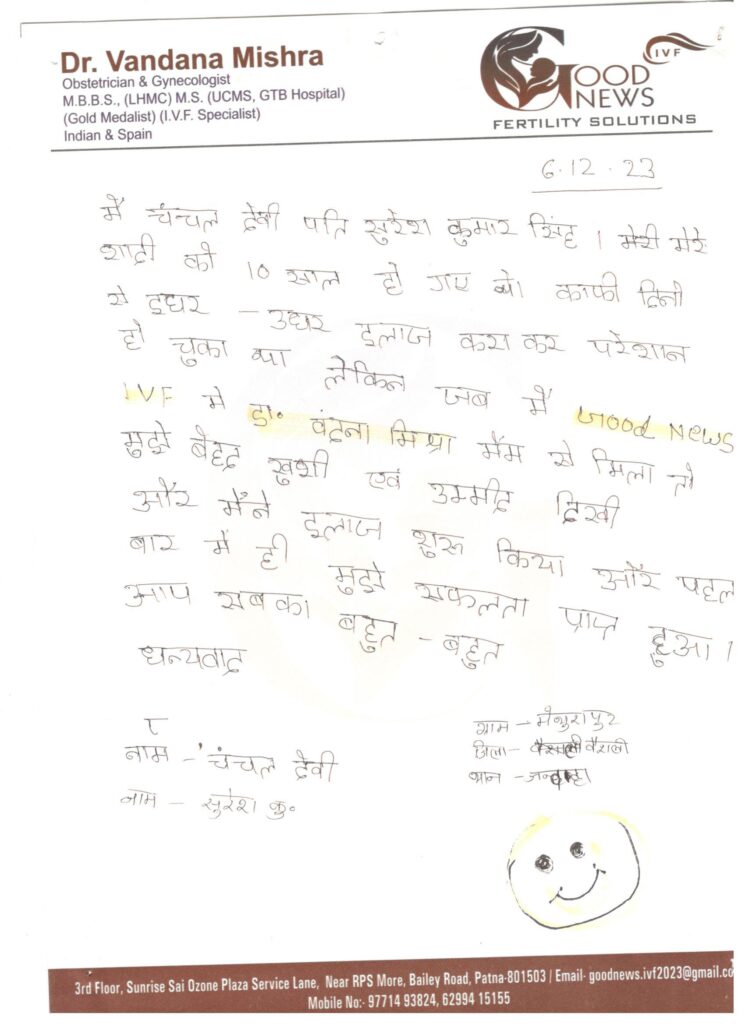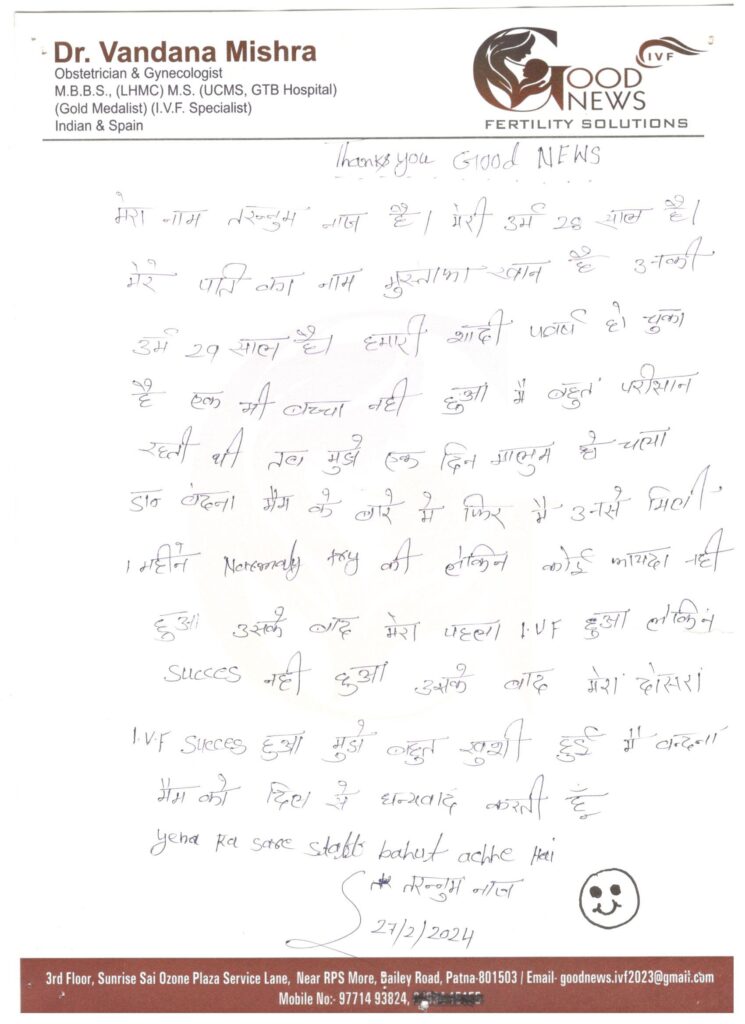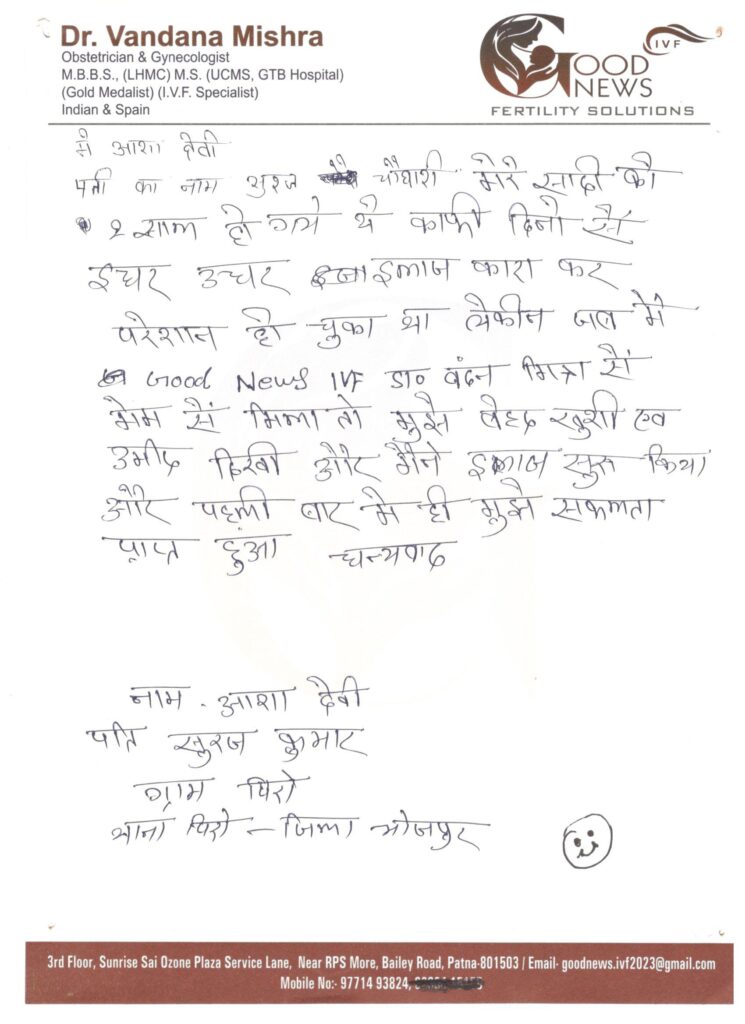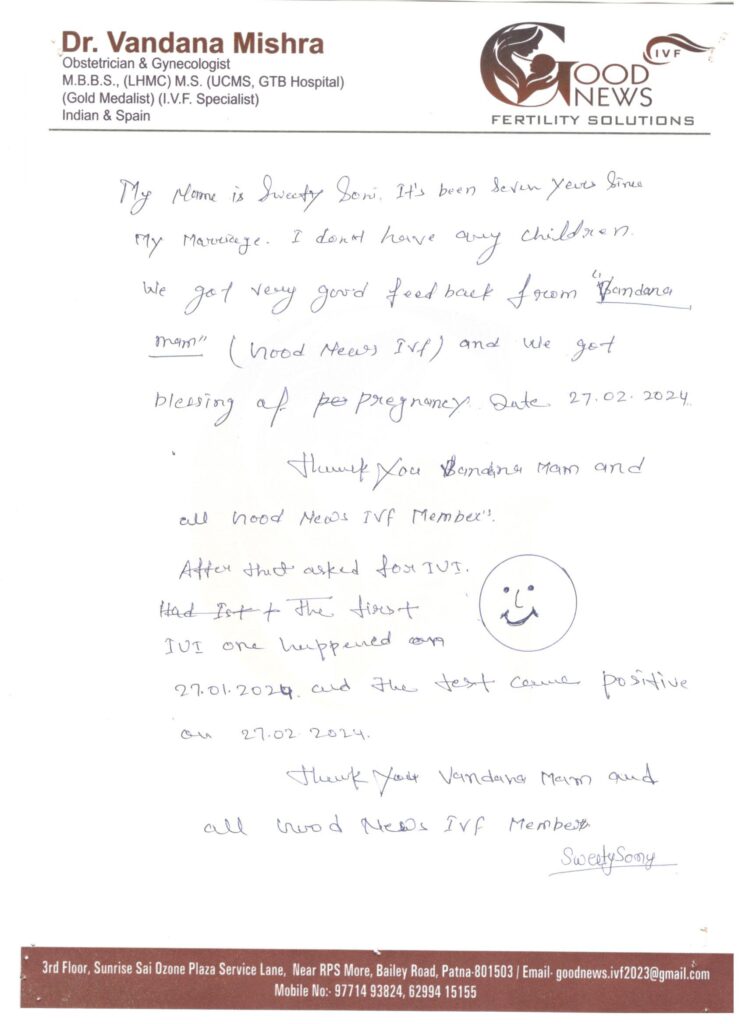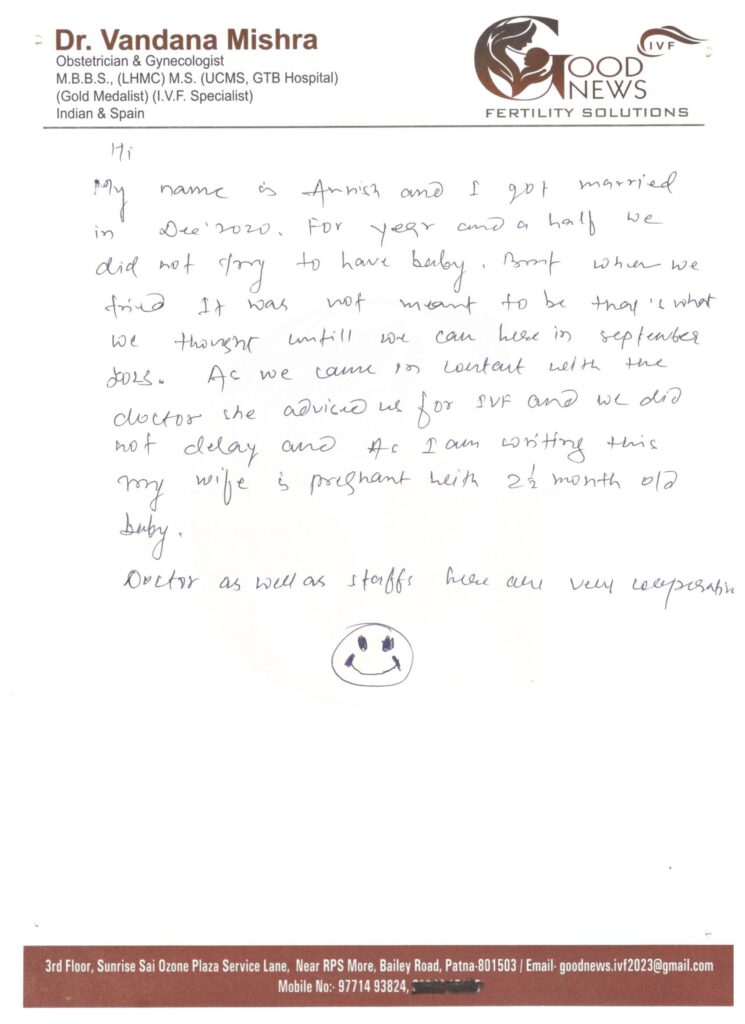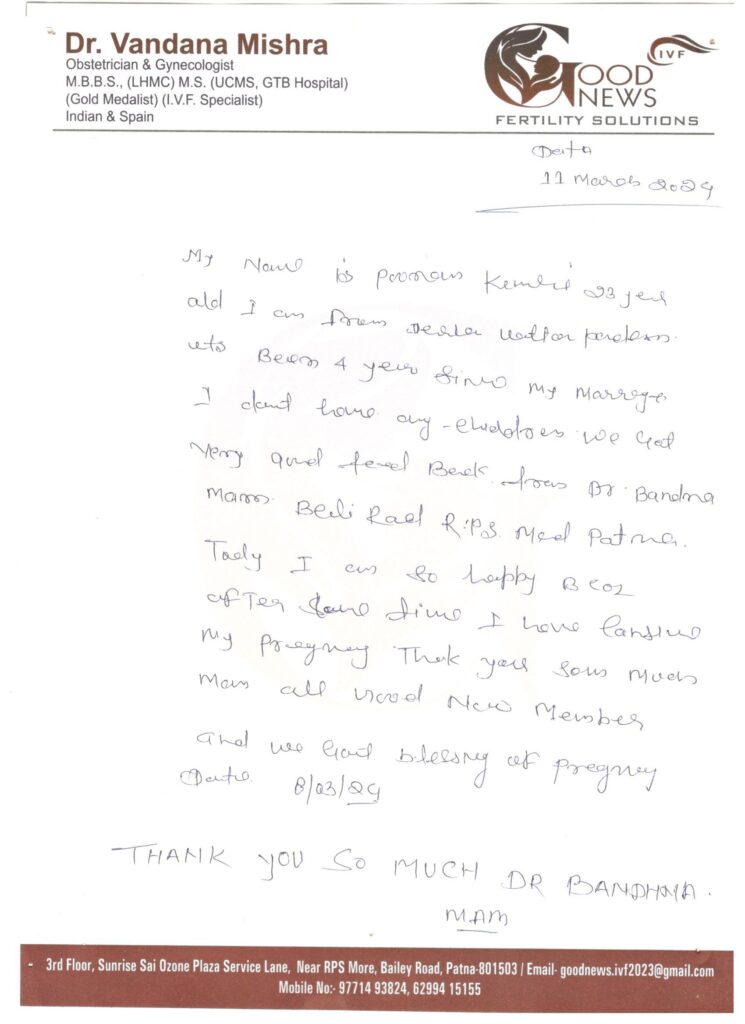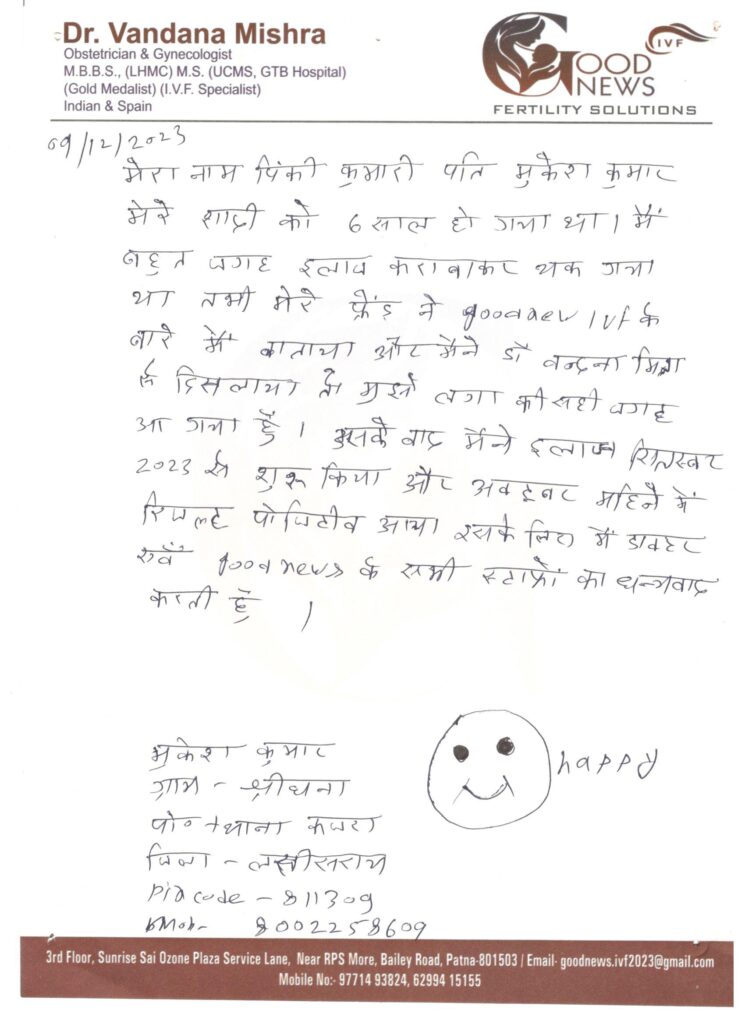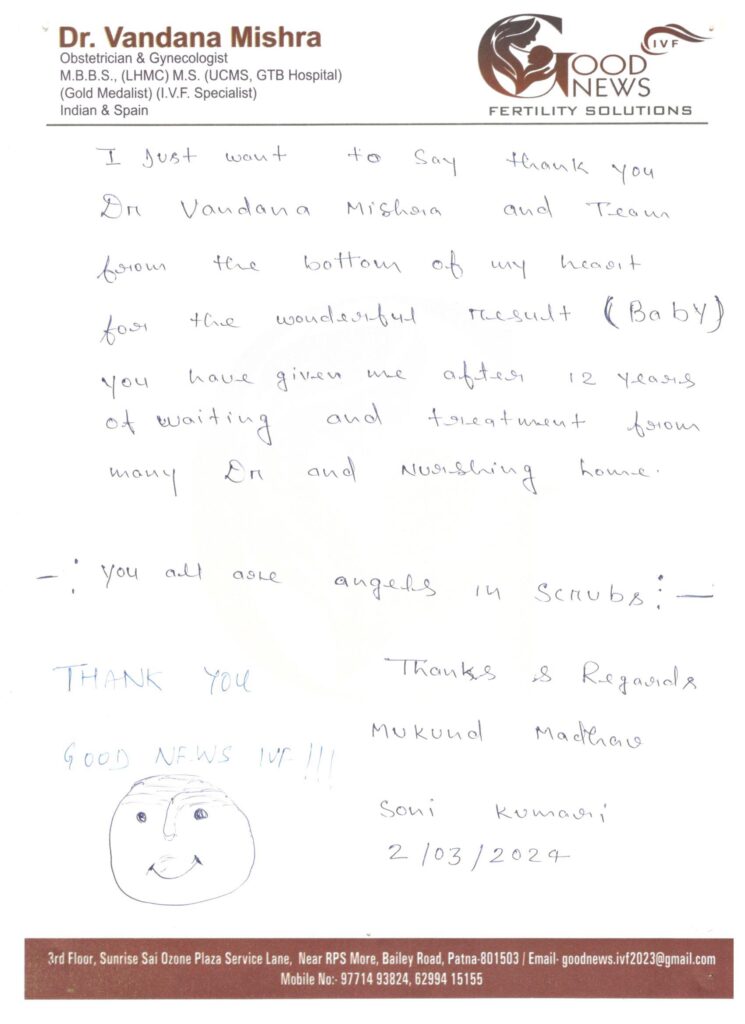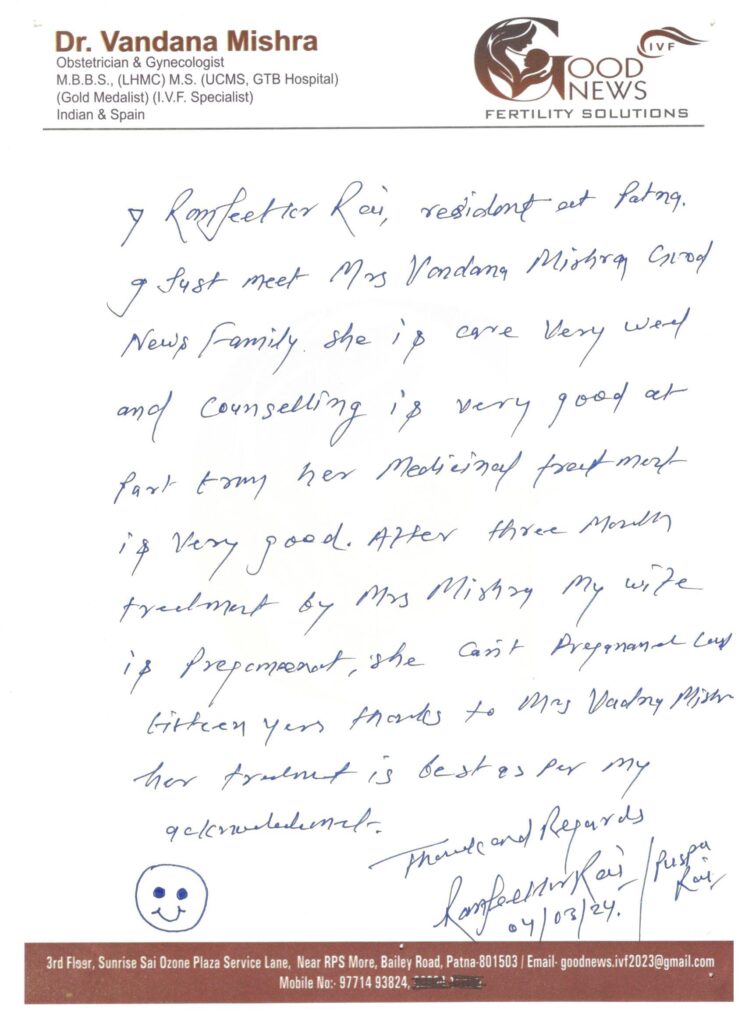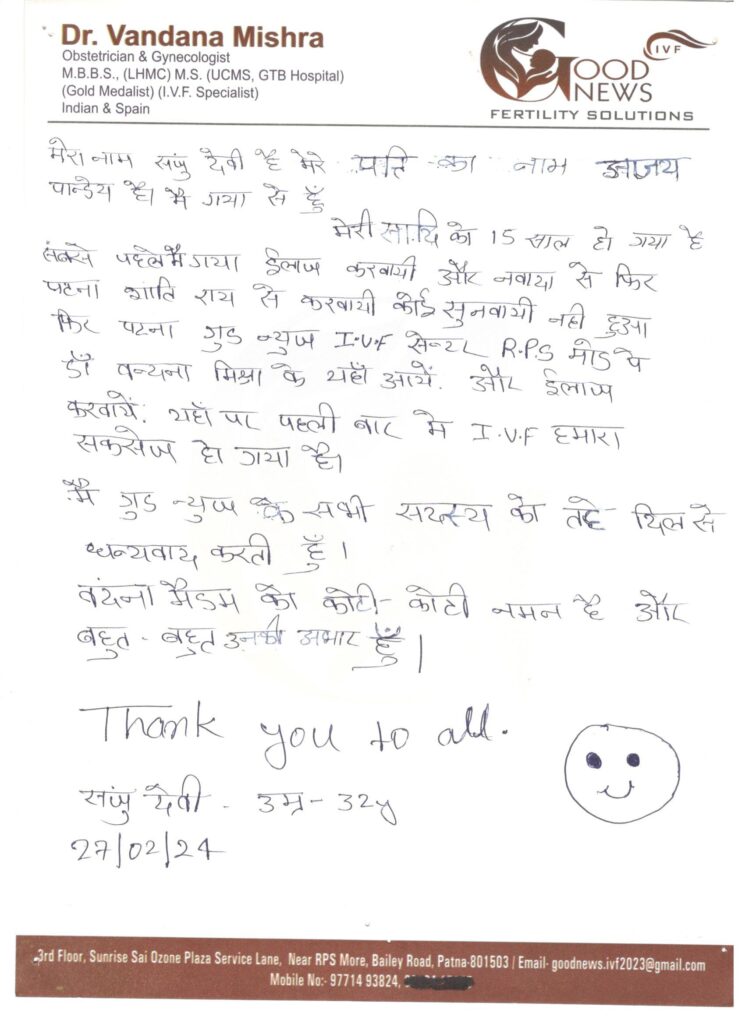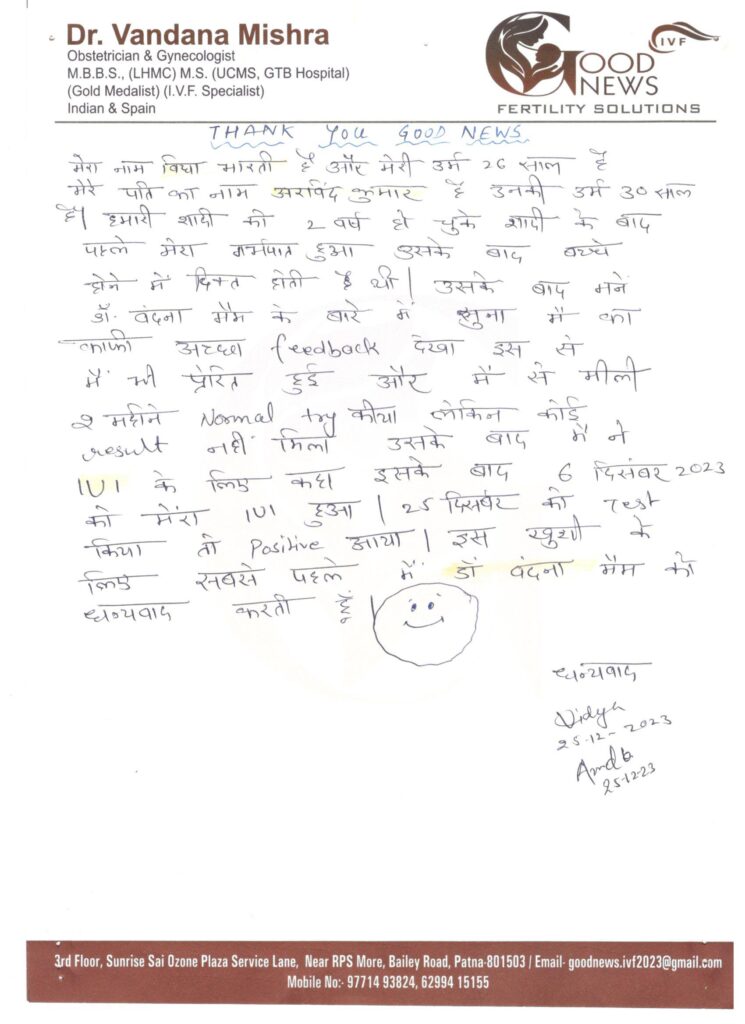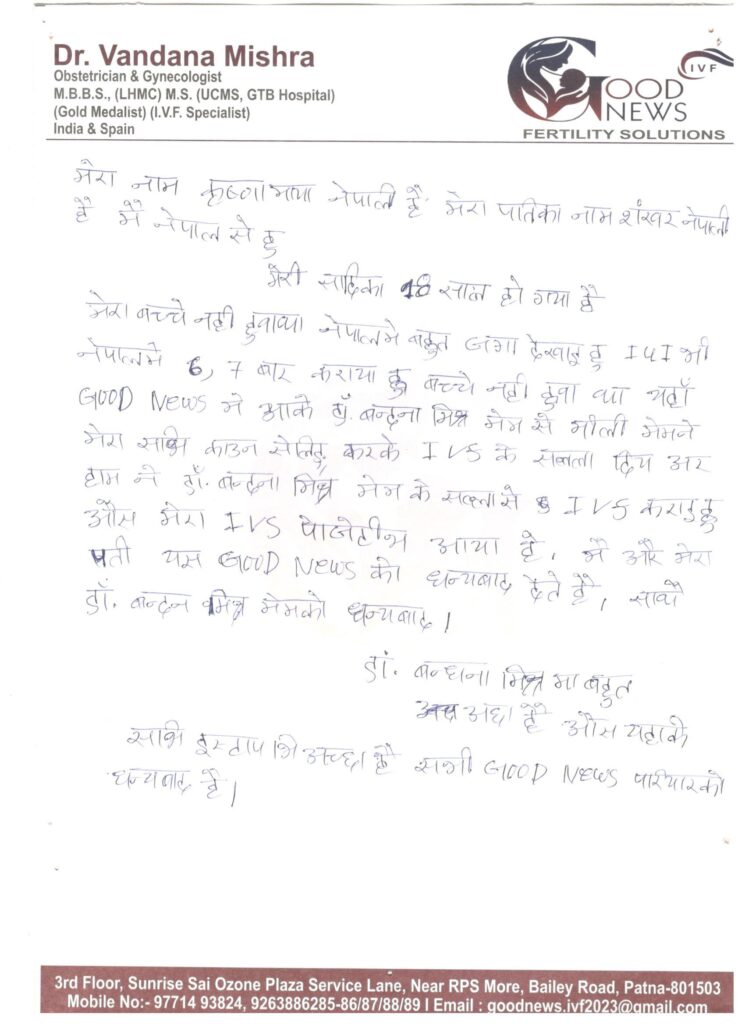Good News IVF
Our Services
Turning hopes into heartbeats
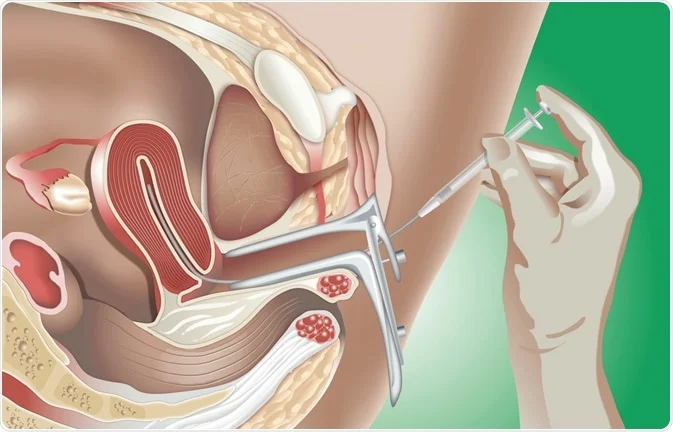
Artificial Insemination
Artificial insemination (AI) is a fertility treatment that involves placing prepared sperm directly into a woman's uterus during ovulation to increase the chances of pregnancy.
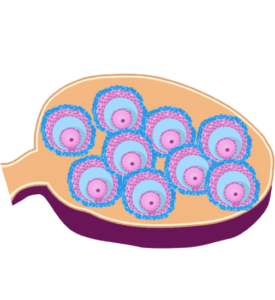
Ovarian Stimulation Theraphy
Medication is administered to stimulate the ovaries to produce multiple eggs, enhancing the chances of successful fertilization during IVF or other fertility treatments.
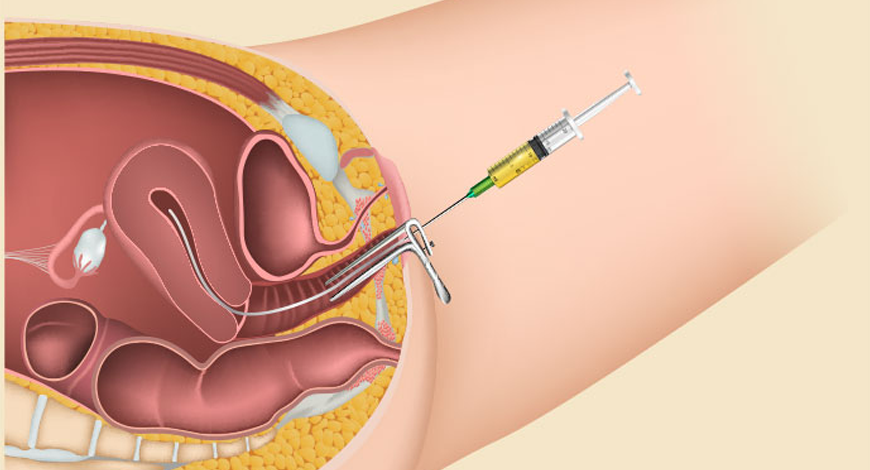
Embryo transfer
The proccess of transferring one or more embryos into the uterus after they have been cultured, aiming for implantation and pregnancy.
FAQ
IVF involves some injections, but apart from that, it does not cause significant physical or mental discomfort.
In India, it is illegal to reveal the gender of a prenatal child due to the Pre-Conception and Pre-Natal Diagnostic Techniques (PCPNDT) Act, which aims to prevent gender-based discrimination and female foeticide.
An IVF cycle typically takes about 2-3 weeks to complete, during which you may need to visit the doctor 2-3 times for monitoring and treatments. The timeline can vary slightly based on individual circumstances and the specific protocol used.
Yes, in IVF, the baby will be genetically yours. For further details, consult with your doctor.
In most cases, it is possible to conceive naturally after a successful IVF pregnancy, except in certain medical conditions.
No, babies born through IVF are physically and mentally as healthy as those conceived naturally.
The success rate of IVF is about 55-66%. However, this success rate is not universal.
Yes, with the help of PGT-A/PGT-M, you can ensure the birth of a genetically healthy baby.
Pregnancy after IVF proceeds normally, and bed rest is generally not required unless medically advised.
IVF is more successful in younger women, typically under 35. While there is no strict age limit, success rates decrease with age, and most clinics recommend treatment before the age of 45.
